
- Majors & Careers
- Online Grad School
- Preparing For Grad School
- Student Life

How to Write a Standout Letter Of Intent For Graduate School

While not all graduate programs ask for a statement of intent, this is a requirement for many grad school applications. A letter of intent for graduate school sets the tone for your application: it introduces you as a person to the selection committee, and provides context to your academic record, qualifications, and professional experience.
Therefore, it’s essential to make your letter of intent as compelling as possible to give you the best chance of admission, especially if you’re trying to get into one of the Ivy Leagues .
Table of Contents
How to Write a Letter of Intent for Grad School
What is a letter of intent for graduate school admission.
A letter of intent is a brief statement which explains your educational background, experiences and motivations for applying to grad school. Some, though not all, graduate programs require you to submit a letter of intent as part of the application process.
A letter of intent is different from a personal statement. While a personal statement deals more with your personal background and passions, a letter of intent focuses more on academic history and professional goals.
The format and content of a letter of intent can vary widely, depending on the graduate school’s preferences. Note that the same is true for both in-person and online Masters programs .
What to Know Before You Start
Before writing a letter of intent for grad school, there are a few key things to keep in mind.
First, each grad school has their own preferences or requirements for letters of intent. Therefore, it’s critical to check the guidelines with the admissions committee before you start preparing your application. Be sure to ask them about the required format, as well as what information you should include.
It’s also important to conduct your own research into the program to determine the kind of things the selection committee will be looking for. This could include factors such as a particular faculty member, the curriculum structure, or learning content.
There’s another important consideration. That’s your academic and professional goals.
- Why are you interested in this particular program?
- What do you want to get out of it?
- How does it fit into your broader career goals?
Answer these questions to help you decide what to include in your letter of intent. This ensures authenticity in your submission. It also sets you apart from anyone else. Your specific desires are your own. They won’t mirror thousands of other applicants.
When you’re ready, daft an outline of the letter. This should cover the main points above. This is an important step to make sure your letter of intent is concise, informative, yet covers all the essential information the admission committee is looking to see.
Once you’ve done all this, you’re ready to start writing your letter of intent.
Read on to learn more about the sections to include, top tips, and letter of intent grad school samples!
Why is a letter of intent important?
If required, your letter of intent plays a vital role in your grad school application that could make the difference between rejection and moving on to the next stage. It provides context to your academic resume, transcripts, and other documentation that gives the reader an idea of who you are as a person.
This can be very compelling to the selection committee, if your letter of intent is strong enough.
It also gives you the opportunity to detail your research interests. This is very valuable if the program has a research component, as you can use your letter of intent to explain your skills and passions in this area.
Through your letter of intent, you can also tell the selection committee about your academic and career goals, helping to convince them that you’re a good fit for the program. Finally, it allows you to showcase your written communication skills, which is a vital skill set for any grad student.
Related: How to Get into Harvard
The Key Parts of a Graduate Letter of Intent
Although the exact format may differ depending on the program’s requirements, there are certain key sections that a letter of intent should typically include.
A letter of intent should generally be structured in the same way as a formal business letter. As such, it should have a header with the name and address of the recipient, usually the admissions counselor or director for the program you’re applying to.
Below this and on a separate line you should put the date that you’re printing the letter.
Directly below the header, be sure to include a formal salutation, typically “Dear…” followed by the recipient’s name. If you don’t know the name of the admissions counselor or graduate program director – find out.
This should be the person in charge of selecting candidates for that particular program. Check the program’s website, and if you can’t find the info that way, send the admissions office an email to ask!
Opening Paragraph
The opening paragraph is one of the most important parts of a letter of intent graduate school. This is your chance to capture the attention of the selection committee and encourage them to keep reading.
In the introduction, you should briefly explain why you want to apply for the program and summarize your academic experience. You can also introduce the key points that you’ll elaborate on later in the letter.
Qualifications and Educational Background
Following your introductory paragraph, you can launch straight into talking about your qualifications and background. This is the time to flesh out the information in your academic resume. You can mention important awards, and impressive academic results.
Along with your academic history, you can also describe relevant professional experience.
Although a letter of intent is mostly focused on the academic sphere, professional experience is worth mentioning if it directly relates to the field you want to study, or if you’ve been working for some years since completing your undergraduate degree.
Research or Study Projects
The next section of the letter should detail your key academic accomplishments, such as major research and study projects. You could also include your professional achievements, if you’re an experienced professional rather than a recent graduate.
You can also mention relevant prizes and awards you’ve received, either in the academic or professional sphere. Be sure to include anything that demonstrates your ability to complete the work required of graduate students.
Goals and Motivations
The previous paragraphs are designed to convince the selection committee that you’re a great fit for their program. This final section is geared towards explaining why the program is a great fit for you.
This is crucial, because admissions counselors look for candidates who are motivated and passionate about the program, rather than those who may drop out due to lack of interest.
Here, you should talk about what draws you to this grad program specifically, whether it is the unique curriculum, a renowned faculty member, flexible program structure, excellent opportunities for internships, or something else.
This is also a great time to describe your future goals, and how the program will help you to work towards them. A strong statement of intent for grad school will cover both educational goals and career goals. You could also mention personal reasons and motivations, such as a desire to increase your knowledge in a certain area, or a particular passion for the field.
Closing Paragraph
End your letter of intent with a short paragraph of around two sentences, summarizing your key points. You may also want to thank the reader for their time or note that you’re looking forward to hearing from them regarding your application.
Don’t skip over or rush your closing statement. Though brief, this is a vital part of your letter of intent: it should bring everything together and leave a strong impression that convinces the selection committee to move your application on to the next stage.
As you are following a business letter format, be sure to include a formal sign off (such as “Sincerely” or “Kind regards”) followed by your full name.
Graduate School Letter of Intent Template and Example
Grad school letter of intent template.
Fill in this template to create your own masters program letter of intent, or adapt it to create a letter to accompany your application for a doctorate or professional program:
[Name and Address of Admissions Counselor]
Dear [Name of Admissions Counselor]
Opening paragraph:
- Introduce yourself and explain why you want to apply in one sentence
- Briefly summarize your qualifications, education history, key motivations, and what you will discuss in the rest of the letter
Paragraph 1: Qualifications and Educational Background
- Detail your undergraduate studies and qualifications
- Describe your major academic accomplishments
Paragraph 2: Major Projects
- Explain your major research and/or study projects
- Cover your professional journey and describe experience relevant to the program
Paragraph 3: Goals and Motivations
- Talk about why you’re interested the program
- Mention your professional and academic goals
[Your signature]
Letter of Intent Example Grad School
Here’s a sample letter of intention for graduate school based on fictional details to show the key sections, formatting, tone, and type of content you should look to include.
Dr. Rosario Ortega Northwestern University School of Professional Studies 339 East Chicago Avenue Chicago, Illinois 60611
September 12, 2023
Dear Dr. Ortega
[Opening paragraph]
Through my undergraduate studies at Brown and internship at the New York Public Library, I’ve developed a strong passion for North American literature. I’m therefore writing to apply for the Master of Arts in Literature at Northwestern University.
[Qualifications and Educational Background]
I completed my Bachelor of Arts at Brown University in 2023, with a concentration in Literary Arts, with an overall GPA of 6.0. Following graduation, I completed a three-month internship at the New York Public Library, where I worked with the archives department, assisting with a range of archiving tasks as well as completing a major project.
[Major Projects]
During my undergraduate studies, I completed a major research project into leading female African American writers of the 20th century. I received the Harriet Tillman Award in recognition for the high standard of work of my project.
As part of my internship with the New York Public Library, I was responsible for a project to provide access to African American history through the holdings of the library’s collection. Working under the guidance of one of the library’s archive specialists, I applied archival standards to process materials and make them available to researchers and the general public.
[Goals and Motivations]
I’m interested in earning my master’s degree from the School of Professional Studies because of the program’s strong faculty and emphasis on diversity. I am particularly excited to work with Dr. Margaret Hedelman, whose pioneering work on the underrepresentation of African American poets is truly inspiring. I believe that literature is a vital part of North American culture and a reflection on society and, as such, it is essential that we acknowledge authors from all communities, and promote underrepresented voices.
[Closing Paragraph]
I believe that the Master’s of Arts in Literature will best allow me to achieve my goal of becoming an archivist and educator in order to share knowledge of diverse authors and poets with the broader community. Thank you for your consideration.
Robert Garman
Related: Does GPA Matter for Grad School ?
Tips for Writing the Best Letter of Intent for University
Your statement of intent can be a crucial part of your grad school application, so it’s important to make it as strong as possible in order to stand out from the other candidates. Here are some important things to keep in mind to help you put your best foot forward.
Remember the Key Purposes of the Letter
As you write your letter of intent, it’s essential to keep in mind why you’re writing it. This will help you to stay on track and optimize your letter to make it as effective and compelling as possible.
A letter of intent has two primary purposes:
- Highlighting the most important information in your application: your key qualifications, experience, and achievements.
- Showing the selection committee who you are as a person, including your own interests and goals.
Your letter of intent should be concise and closely focused on achieving these two goals. This means that everything you share should contribute to these aims. If you find yourself writing something that doesn’t support one of these two goals, delete it! This is merely unnecessary fluff that detracts from your core message.
Related: Looking for extra flexibility with your finances? Consider this year’s best student credit cards .
Leverage Your Strengths
Though a statement of intent should generally focus on academic history and broadly follow a set format, you can play with standard templates in order to make your letter as compelling as possible.
You may have an impressive level of professional experience that demonstrates your ability to excel at grad school, but your academic history is lackluster or outdated. In this case, it would be better to focus on your professional experience and achievements and only briefly mention your academic history.
On the other hand, if you’ve recently completed your undergraduate degree, you could focus entirely on your academic qualifications, projects, and awards.
If you feel like both your academic and professional history is lacking, talk about your personal story and why you have a passion for the subject matter.
It’s all about leveraging your strengths to present the most compelling case for why the admissions committee should accept you into their program.
Take the Opportunity to Showcase your Writing Skills
Though primarily designed to explain your abilities, experience, and interests, one of the secondary purposes of a letter of intent is to showcase your written communication skills. Written communication is a big part of any graduate program, especially programs with a thesis or dissertation component. This is your chance to show that you can write well.
Therefore, it’s important to ensure that your letter is well-written in a professional style, using proper formatting, grammar, and spelling. If writing is not your strong suit, or if you’re not accustomed to preparing format business letters, take your time to do some prep work.
Read up on the required formatting, style and flow for these kinds of letters. You may even want to practice your formal writing skills through writing exercises.
Carefully Edit your Letter of Intent
As with all aspects of your graduate school application, it’s important to carefully proofread and edit your letter of intent. Graduate programs can receive hundreds, if not thousands, of applications, and they may quickly cull applications based on a range of factors, including poor editing.
Even small errors could result in your application landing on the “discard” pile instead of moving on to the next stage.
Good editing goes much further than checking your letter for stray commas and spelling mistakes. First of all, you want to carefully review the content of the letter to make sure it is compelling, informative, and includes all key information. Then, take another pass to check for grammar, spelling, and punctuation, as well as ensuring that the writing flows well and sounds professional.
Impress with a Winning Letter of Intent
The best graduate programs are highly competitive, so it’s essential to make your application as strong as possible in order to stand out from potentially hundreds, if not thousands of applicants.
This is particularly true for your letter of intent which, if required, sets the tone for your application and can help convince the admissions committee to move you forward to the next stage.
Craft a compelling letter of intent for graduate school by keeping it concise and well-written, and focused on explaining why you’re a great fit for the program, and it’s a perfect fit for you.
While you’re preparing your winning grad school application, take a look at our guide to how to ask a professional for a letter of recommendation .
Do All Schools Require a Letter of Intent?
No – not all schools require a letter of intent. While some graduate programs ask for a letter of intent as part of the application process, others demand a personal statement instead. Always check the application requirements well in advance of the deadline, so you’ll have plenty of time to put together a strong application.
How Long Should a Letter of Intent Be?
A letter of intent for a masters program or other graduate program should be around 3-4 paragraphs long, as well as short opening and closing paragraphs, header, and sign off. Generally speaking, an ideal letter of intent is between 300 and 450 words, and no more than one page. However, each program may have its own requirements, so be sure to check with the admissions office before preparing your letter.
How Should You Format a Letter of Intent?
Some programs require specific formatting, so be sure to ask the admissions office if they have any specific requirements for the letter of intent. If they don’t, you should standard formatting for a business letter: a header with the recipient’s name and address, the date, formal greeting, opening paragraph, body with 3-4 paragraphs describing your history, achievements, and interest in the program, a short closing paragraph, and a formal sign off. Be sure to use a professional font, size, spacing, and margins, in line with a business letter.

Lisa Marlin
Lisa is a full-time writer specializing in career advice, further education, and personal development. She works from all over the world, and when not writing you'll find her hiking, practicing yoga, or enjoying a glass of Malbec.
- Lisa Marlin https://blog.thegradcafe.com/author/lisa-marlin/ 30+ Best Dorm Room Essentials for Guys in 2024
- Lisa Marlin https://blog.thegradcafe.com/author/lisa-marlin/ 12 Best Laptops for Computer Science Students
- Lisa Marlin https://blog.thegradcafe.com/author/lisa-marlin/ ACBSP Vs AACSB: Which Business Program Accreditations is Better?
- Lisa Marlin https://blog.thegradcafe.com/author/lisa-marlin/ BA vs BS: What You Need to Know [2024 Guide]
As a Class of 2024 Graduate, You’re Part Of The Job-Hopping Generation
How to apply to grad school: ultimate 2024 guide, related posts.

- How Many Grad Schools Should I Apply To?
![grad school application letter example When to Apply for Grad School: The Simple Guide [2026/2027]](https://blog.thegradcafe.com/wp-content/uploads/2021/08/When-to-Apply-to-Grad-School-350x250.png)
- When to Apply for Grad School: Easy Monthly Timeline [2025-2026]

Computer Science Graduate Admission Trends: Annual Results

Breaking Records: Yale Sees Most Selective Grad Admissions Season Yet
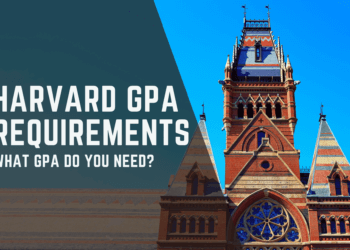
Harvard GPA Requirements: What GPA Do You Need to Get In?

Leave a Reply Cancel reply
Your email address will not be published. Required fields are marked *
Save my name, email, and website in this browser for the next time I comment.
Recent Posts
- Last Mile Education Fund Paves the Way for Tech Students, Offers Lifeline Grants
- 30+ Best Dorm Room Essentials for Guys in 2024
- Best Laptop for Programming Students in 2024

© 2024 TheGradCafe.com All rights reserved
- Partner With Us
- Results Search
- Submit Your Results
- Write For Us
5 Professional Grad School Cover Letter Examples for 2024
Your grad school cover letter must instantly captivate the admissions committee. It should highlight your academic achievements and research interests clearly. Bear in mind, your letter is a formal introduction to your intellectual passions. Craft it carefully to reflect both your dedication and potential for advanced study.
All cover letter examples in this guide
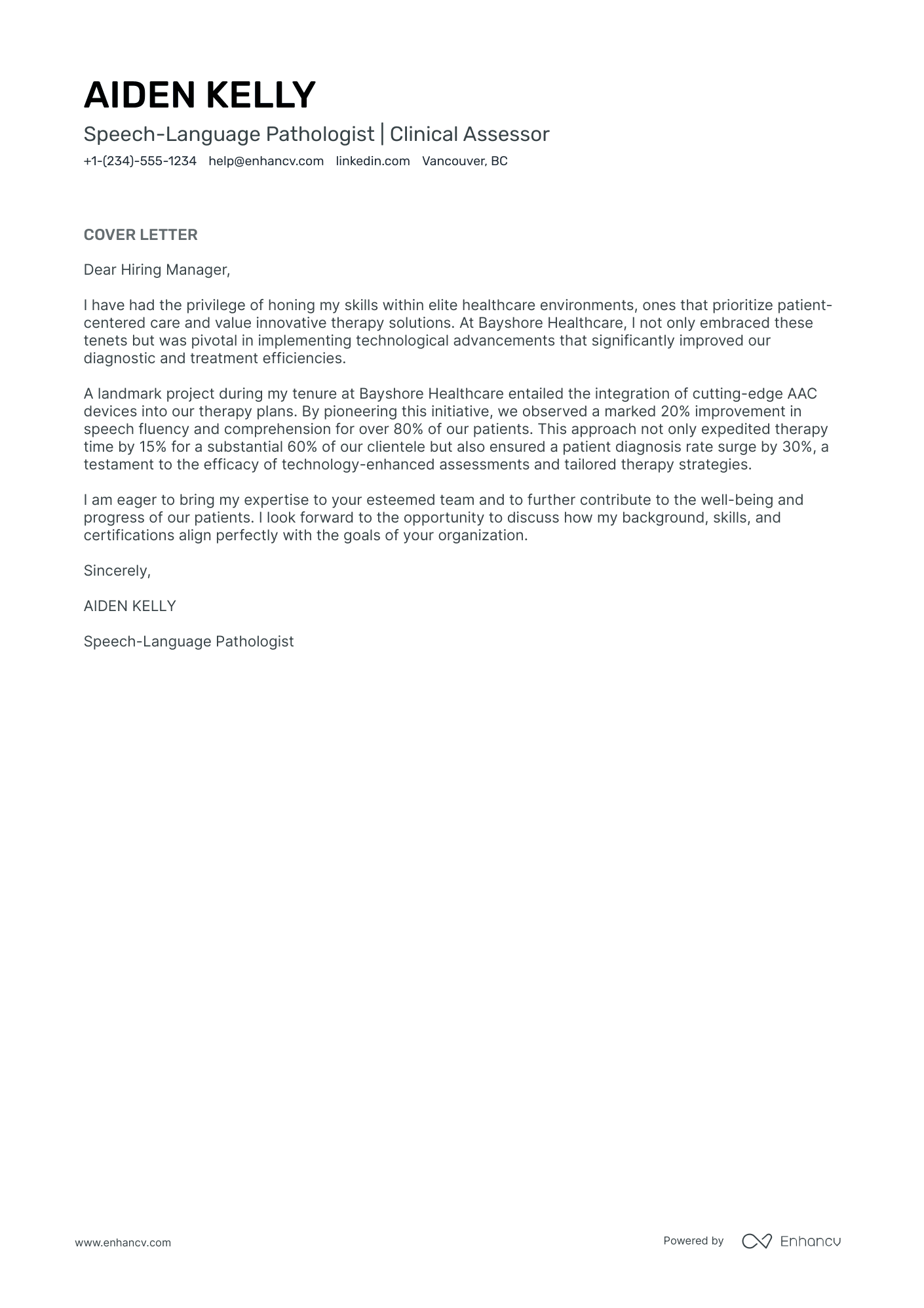
SLP Grad School
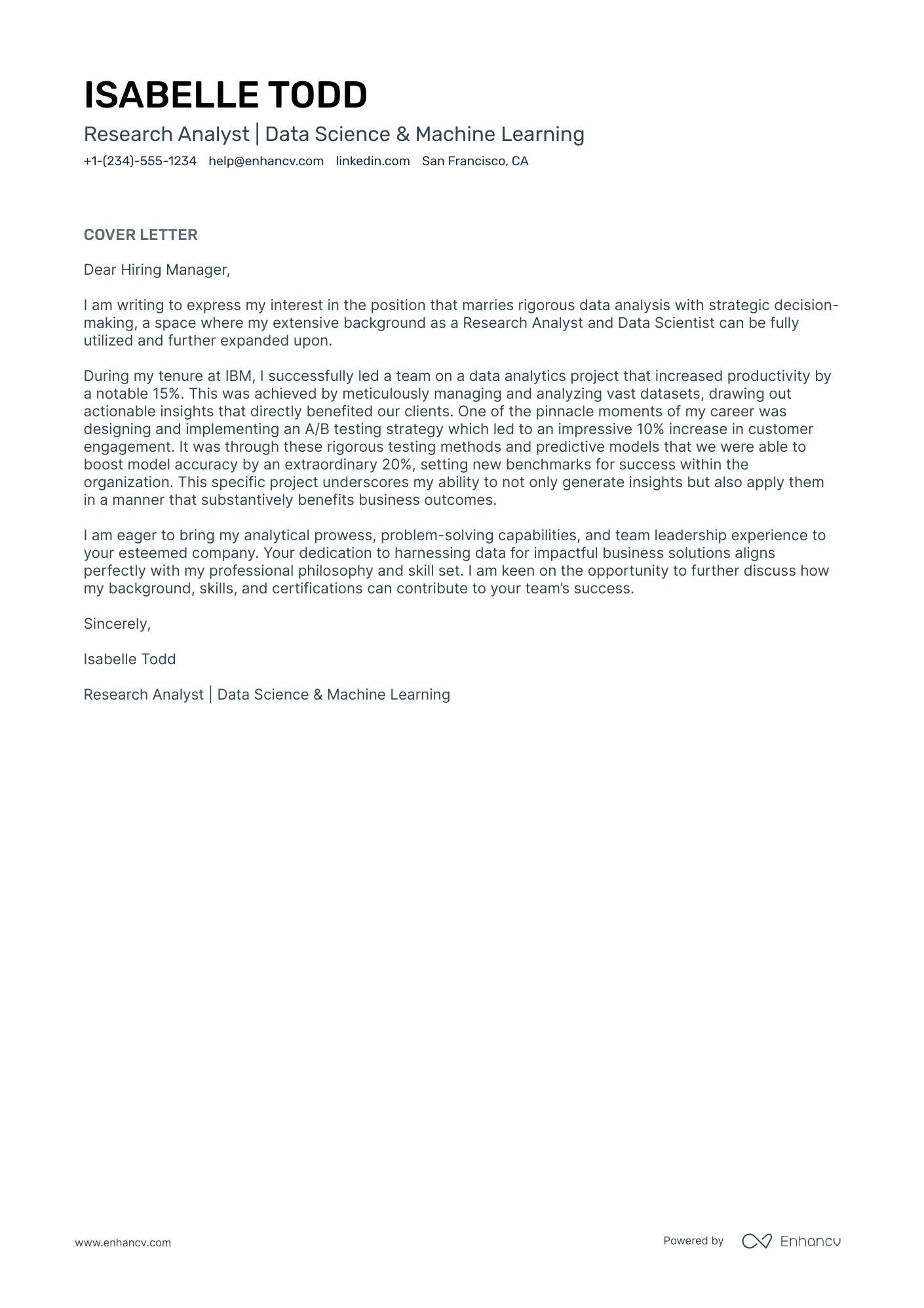
Nursing Grad School
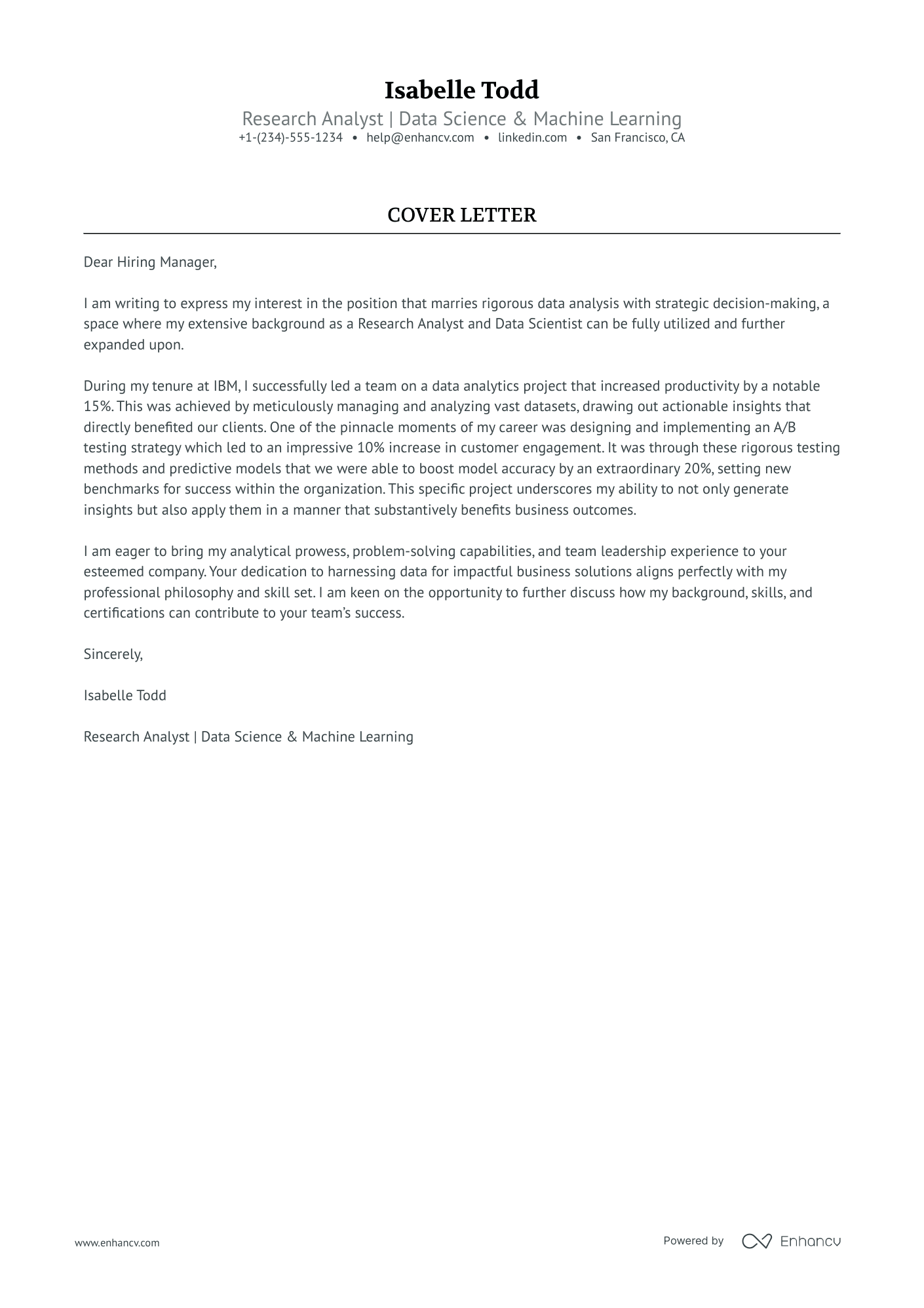
Biology Grad School
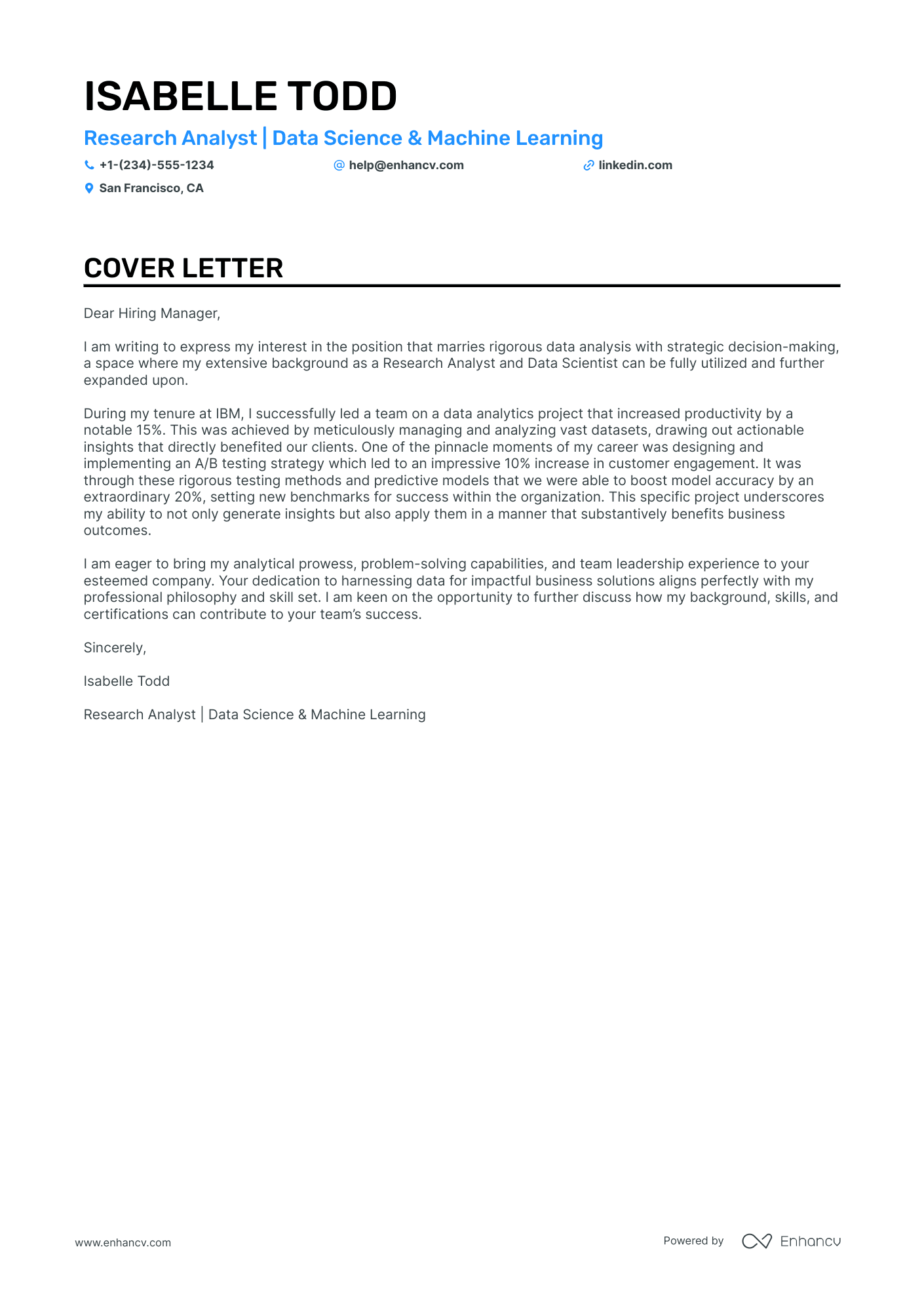
Psychology Grad School
Cover letter guide.
Grad School Cover Letter Sample
Cover Letter Format
Cover Letter Salutation
Cover Letter Introduction
Cover Letter Body
Cover Letter Closing
No Experience Grad School Cover Letter
Key Takeaways

Writing a grad school cover letter can often feel like a puzzle where the pieces don't quite fit. You've started applying for jobs and suddenly realize you need more than a resume—you need a personal touch that tells your story. It's not just about listing achievements; it’s about showcasing your proudest professional moment in a compelling and formal way, without falling into the trap of overused phrases. And all within the confines of one concise page. Let's navigate this together and make your cover letter stand out.
- Introduce your profile to catch recruiters' attention;
- Use professional templates and examples to make sure your grad school cover letter follows the best industry standards;
- Settle on your most story-worthy achievement to shine a light on what makes your application unique;
- Write a grad school cover letter, even when you lack professional experience.
Ready to start with the basics: upload your resume to Enhancv's AI, below, to see the grad school cover letter it would write for you.
If the grad school isn't exactly the one you're looking for we have a plethora of cover letter examples for jobs like this one:
- Grad School resume guide and example
- Tutor cover letter example
- Math Teacher cover letter example
- Kindergarten Teacher Assistant cover letter example
- Technology Teacher cover letter example
- Spanish Teacher cover letter example
- New Teacher cover letter example
- Pre K Teacher cover letter example
- Student Ambassador cover letter example
- Biology Teacher cover letter example
- Preschool Director cover letter example
Grad School cover letter example
Isabelle Todd
San Francisco, CA
+1-(234)-555-1234
- Emphasis on past achievements with quantifiable results — such as increasing productivity and customer engagement — proves the ability to add value and solve real-world problems.
- Highlighting experience in relevant projects, like the A/B testing strategy, shows a track record of applying specific skills that are likely transferable to the new role.
- Mentioning technical proficiency in data analytics, predictive models, and specific tools or methodologies (e.g., machine learning) matches the specialized needs of the role.
- Demonstrating leadership by outlining experiences of leading teams aligns with roles that may require supervision or team collaboration.
The visual appeal of your grad school cover letter: format, font, and structure
When using our cover letter builder , make sure to include these vital sections:
- Header (with your name, contact details, the role, and date);
- Greeting (that's personalized to the recruiter);
- Introductory paragraph (to capture attention);
- Body paragraph (to tell a story of how you've obtained your job-crucial skills);
- Closing paragraph (ending with a nod to the future ahead);
- Signature (that is not a must).
Our cover letter templates are already set up for you with the best grad school cover letter design with single-spaced paragraphs and a one-inch margin.
As for the font of your grad school cover letter, use the same one as you did in your resume (where modern and simple fonts, like Rubik and Bitter, take precedence over Arial and Times New Roman).
Your grad school cover letter is created with the recruiters in mind - as no Applicant Tracker System looks over this part of your profile.
When sending over your grad school cover letter, download it in PDF. This format allows your information and design to stay intact and to keep the same visual quality.
The top sections on a grad school cover letter
- Header: Includes your contact information, the date, and the recipient's details, providing a professional look to your cover letter and making it easy for the admissions committee to contact you.
- Opening Greeting: A respectful salutation that addresses the specific individual or admissions committee, demonstrating that you’ve researched who will be reviewing your application.
- Introduction: Briefly mentions your background and the program you are applying for, while expressing your enthusiasm and alignment with the school's values, which helps to hook the reader’s interest.
- Body: Elaborates on your relevant academic and research experiences, specific interests in the program, and how your goals align with the faculty's expertise, showing the recruiter your potential fit and contribution to the program.
- Closing Paragraph: Summarizes your qualifications, reiterates your interest in the program, and includes a courteous thank you, leaving a final positive impression and signaling the end of your cover letter.
Key qualities recruiters search for in a candidate’s cover letter
As there is no specified role provided in your request, I will list 6 key qualities, experiences, and traits for a general graduate school applicant. If you want a list tailored to a specific grad school program or job title, please provide the details. Here is the list for a general grad role:
Strong academic record: Evidence of intellectual horsepower and discipline to handle rigorous coursework.
Relevant research experience: Demonstrates the ability to conduct scholarly inquiry and contributes to the field of study.
Clear career goals: Shows purpose and intentionality, aligning with the program's strengths.
Excellence in communication: Ability to articulate complex ideas clearly and effectively in writing and speaking.
Professional or academic recommendations: Strong endorsements from credible sources who can vouch for the applicant's abilities and potential.
Personal qualities such as resilience, initiative, and creativity: Attributes that suggest the applicant can thrive in challenging environments and contribute to the academic community.
The grad school cover letter salutation: how to address hiring managers
After covering the format of your grad school cover letter, let's look at the salutation.
Back in the day, the cordial "To whom it may concern" or "Dear Sir/Madam", might have worked out fine.
But, nowadays, your cover letter should approach hiring managers on a more personal basis.
So, what to do about your cover letter salutation ?
If you've messaged the recruiters and are on a first name basis or a more formal one, use the hiring manager's name in the greeting (e.g. "Dear Sophie," "Dear Ms. Givens", or "Dear Mr. Everett,").
Always aim to make the effort to find out the name of the hiring manager, who'd be assessing your application. Search on LinkedIn, double-check the advert on the corporate website, or message the brand on social media to find out more about the role.
If you can't find the hiring manager's name (and still want to sound professional), use "Dear HR Team,", "Dear Hiring Manager,", or the likes.
List of salutations you can use
- Dear Admissions Committee,
- Dear [Program Director's Name],
- Dear [Department Name] Selection Committee,
- Dear Professor [Last Name],
- Dear Dr. [Last Name],
- Dear Graduate Admissions,
The grad school cover letter intro: aligning your interest with the company culture
You only have one chance at making a memorable first impression on recruiters with your grad school cover letter.
Structure your introduction to be precise and to include no more than two sentences.
Here are some ideas on how to write a job-winning grad school cover letter introduction:
- get creative - show off your personality from the get-go (if this aligns with the company culture);
- focus on your motivation - be specific when you say what gets you excited about this opportunity.
What to write in the middle or body of your grad school cover letter
Here's where it gets tricky.
Your grad school cover letter body should present you in the best light possible and, at the same time, differ from your resume.
Don't be stuck in making up new things or copy-pasting from your resume. Instead, select just one achievement from your experience.
Use it to succinctly tell a story of the job-crucial skills and knowledge this taught you.
Your grad school cover letter is the magic card you need to further show how any organization or team would benefit from working with you.
Ending your grad school cover letter: a closing paragraph with a promise
If you're thinking of finishing your grad school cover letter with a "Sincerely yours" or "Thanks for the consideration," you need to read on.
End the final paragraph of your grad school cover letter with a twist:
- a promise - of how you'd grow as a professional, part of the company, or improve organizational metrics;
- a call to action - prompt interviewers with some follow-up actions if they are interested in your profile.
A personalized ending would surely help you to stand out by being a memorable candidate.
Addressing limited to no experience in the grad school cover letter
There's nothing to worry about if you lack professional experience .
Your grad school cover letter could bridge the gaps in your professional history by focusing on what matters most to recruiters, that's either:
- skills - focusing on transferable ones you've gained, thanks to your life experience (e.g. volunteering, certificates, etc.);
- achievements - select the most relevant and noteworthy one from your history (e.g. education, projects, etc.);
- motivation - describe how you envision your professional growth in the next up to five years, thanks to this opportunity.
Key takeaways
Writing your grad school cover letter doesn't need to turn into an endless quest, but instead:
- Create an individual grad school cover letter for each role you apply to, based on job criteria (use our builder to transform your resume into a cover letter, which you could edit to match the job);
- Stick with the same font you've used in your resume (e.g. Raleway) and ensure your grad school cover letter is single-spaced and has a one-inch margin all around;
- Introduce your enthusiasm for the role or the company at the beginning of your grad school cover letter to make a good first impression;
- Align what matters most to the company by selecting just one achievement from your experience, that has taught you valuable skills and knowledge for the job;
- End your grad school cover letter like any good story - with a promise for greatness or follow-up for an interview.
Grad School cover letter examples
Explore additional grad school cover letter samples and guides and see what works for your level of experience or role.
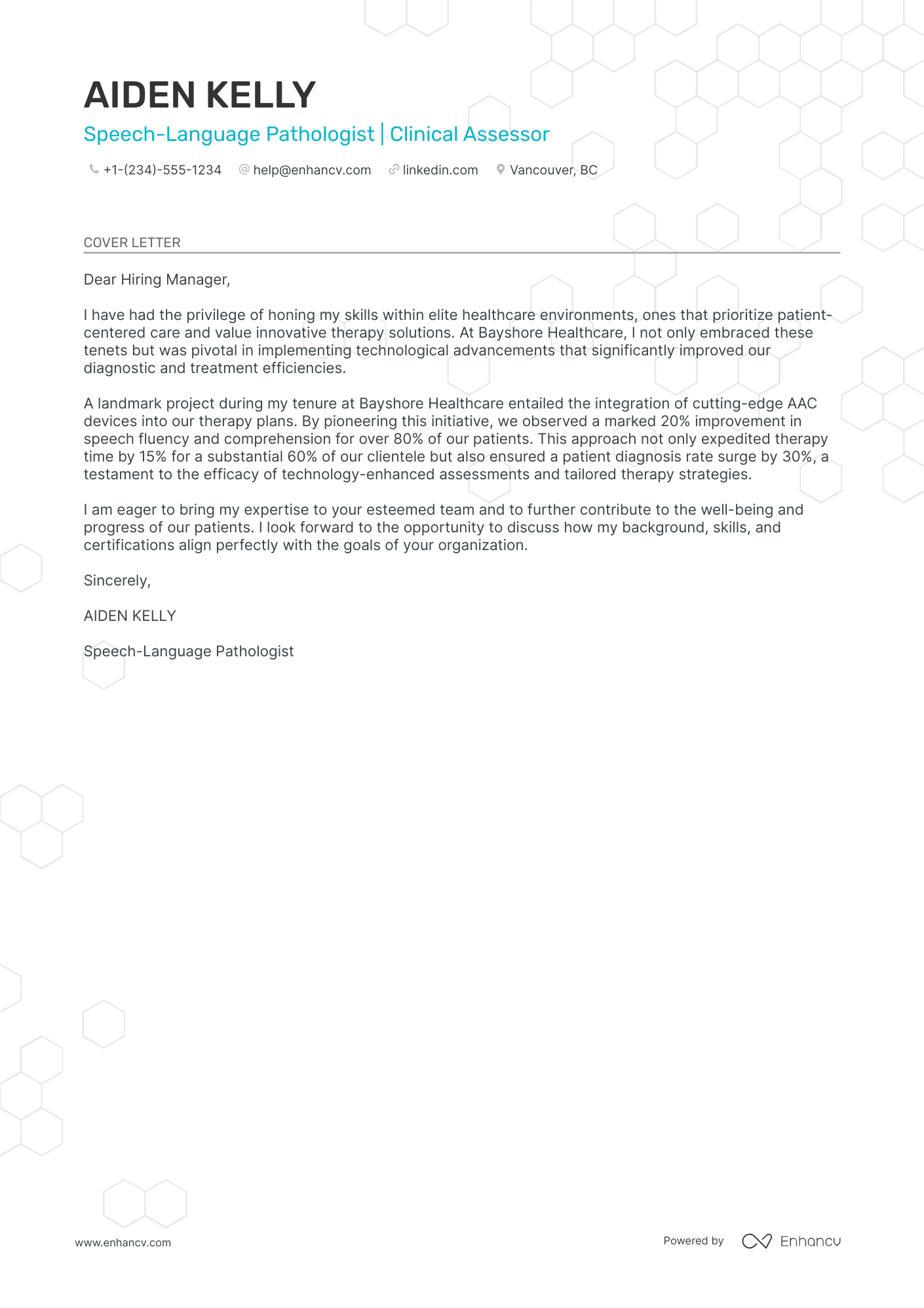
Cover letter examples by industry

AI cover letter writer, powered by ChatGPT
Enhancv harnesses the capabilities of ChatGPT to provide a streamlined interface designed specifically focused on composing a compelling cover letter without the hassle of thinking about formatting and wording.
- Content tailored to the job posting you're applying for
- ChatGPT model specifically trained by Enhancv
- Lightning-fast responses

Why Are You Leaving Your Current Job - Interview Question (+ Answers)
Cv vs resume: differences, similarities & which one to use, driver's licence on resume, how to decide whether to use the reverse chronological resume, on recruiters' and employers' watch: top skills for your 2024 resume, 200+ hard skills for your resume in 2024.
- Create Resume
- Terms of Service
- Privacy Policy
- Cookie Preferences
- Resume Examples
- Resume Templates
- Resume Builder
- Resume Summary Generator
- Resume Formats
- Resume Checker
- AI Resume Review
- Resume Skills
- How to Write a Resume
- Modern Resume Templates
- Simple Resume Templates
- Cover Letter Builder
- Cover Letter Examples
- Cover Letter Templates
- Cover Letter Formats
- How to Write a Cover Letter
- Resume Guides
- Cover Letter Guides
- Job Interview Guides
- Job Interview Questions
- Career Resources
- Meet our customers
- Career resources
- English (UK)
- French (FR)
- German (DE)
- Spanish (ES)
- Swedish (SE)
© 2024 . All rights reserved.
Made with love by people who care.

- Cover Letter
- Resume templates Simple Professional Modern Creative View all
- Resume examples Nurse Student Internship Teacher Accountant View all
- Resume Builder
- Cover Letter Templates Simple Professional Modern Creative View all
- Cover letter examples Nursing Administrative Assistant Internship Graduate Teacher View all
- Cover Letter Builder
- Resources Video Podcasts
- Blog Categories Job Interview Cover Letter Career Resume Help View all
Graduate cover letter example

A few writing rules
Getting the tone right, cover letters examples for:, resumes examples for:.
Congratulations on finishing your college degree! Patience, determination and years of hard work have culminated in this moment of success. Now, it’s time for your next challenge: landing a job, fellowship or other opportunity.
One of the first tools you’ll need for success as a recent grad is a highly-polished resume and the knowledge of how to write an exceptional graduate cover letter. If you haven’t finished perfecting your resume, we’ve got you covered. Check out resume.io’s tips and tricks in our profession-specific resume examples , templates and general resume writing guide .
Once you’ve got your resume in top shape, this guide will show you how to knock your cover letter out of the park. We’ll focus primarily on the right qualities to convey for entry-level positions and how to beef up your resume when you’re just starting out. Since “recent graduate” isn’t actually an occupation, it’s a good idea to check out our other profession-specific cover letter guides for even more useful tips in your field of interest. This guide, along with an effective cover-letter example will:
- Explain the importance of creating a knockout cover letter when it comes to landing your first position
- Outline the details of professional cover letter formatting and provide free examples, samples and templates to work from
- Teach you how to use persuasive psychology to boost the body of your letter
- Help you convey the personality traits applicable to entry-level jobs in ANY field.
What is the purpose of a fresh graduate cover letter?
A cover letter for a fresh graduate, also called an application letter or letter of interest, is one of the most commonly requested job application materials. The primary purpose of your graduate cover letter is to work alongside your resume to create a complete picture of personality, experience and strengths as a candidate.
Whereas a resume has clearly defined sections that are constructed based on your actual education and work history, a cover letter is a bit looser. While this can be overwhelming for some recent grads, flexibility is one of the application letter’s biggest advantages. You’re encouraged to discuss your goals, perspectives and successes and let your charisma shine.
One of the biggest challenges recent graduates face when applying for positions is a lack of concrete or relevant work experience. It can be hard to convince an employer that you have the skills for the job if you don’t have much on your resume to prove it. That’s where an exceptional cover letter can work wonders. A well-organized and deliberate application letter for a fresh graduate lets you highlight the qualities you do have to convince an employer that you’re worth a shot.
A cover letter is usually between 200 and 400 words long, or the length of one page. Recent graduates often try to make up for a lack of resume experience by writing long, expounding cover letters that dive into every possible corner of their educational journey. Unfortunately, this can be an automatic “out” in the eyes of many employers.
Instead, focus on creating a strong argument by selecting only a handful of convincing points and carrying these themes throughout the letter. It’s also very important to adhere to the right formatting and font principles when drafting your cover letter. Stick to trusted font styles like Georgia, Calibri, Helvetica and Arial with a size between 10 and 12 points. A whimsical font like Comic Sans might seem tempting, but it’s a big no-go. You can find more details about style in this general cover letter writing guide.
Remember, at the end of the day a cover letter is all about maximizing your chances. Any spelling or grammar errors, wacky fonts or messy formatting will distract a hiring manager from your main purpose and bring down the likelihood of landing the position.
Do I NEED a cover letter?
We’ve all been there – an online application offers a spot to upload a cover letter, but the description doesn’t specify whether it’s truly a requirement. Technically, you could just upload your resume and move on with your life, right? That would be a big mistake.
If you truly want a position, why would you throw away one of your biggest chances to make a great first impression for success? Unless a posting specifically asks you NOT to submit a cover letter, you should always write and send one. You never know – your letter just might make all the difference when it comes time for a hiring manager to make some decisions.
It takes the average recent grad three to six months to find a job after graduation. Moving back home with your parents might seem cliché, but a lot of other graduates are in the exact same position. Today’s recent graduates are more likely to be underemployed (i.e. working at a job that doesn’t require a college degree) than they were in 1990, according to the Harvard Business Review . Recent grads are also more likely to be clustered in certain roles, primarily as advertising managers, actuaries, news reporters and law clerks. Add to that the fact that the average starting salary in 2020 was more than $5,000 below that of 2019, CNBC found , and it may look bleak. It doesn't help that hat figure has risen 2.5 percent in 2022, much lower than the rate of inflation, according to a National Association of Colleges and Employers (NACE) survey .
But there’s also some positive news: More and more students are opting to major in creative fields and fields that interest them. And people with college degrees are much better protected against economic recessions than their degree-less counterparts. This data points to two things: 1. you’re not alone in this potentially confusing post-grad phase and 2. the job search hunt, especially for fresh graduates, takes patience and positivity. A strong cover letter and resume are essential tools to landing not just any job, but the job YOU want.
Best format for a graduate cover letter
The good news is that no matter which field you studied or plan to work in, the format for a great graduate cover letter is roughly the same. While an application letter might seem structureless, these sections can help you stay on track and make the most of your one-page allowance.
Plus, these are the sections hiring managers expect to see so you can rest assured you haven’t thrown the employer any curveballs. Key components include:
- The cover letter header
- The greeting
- The introduction
- The letter body
- The conclusion
- The signature
Let’s take a look at each of them, but first, here is a graduate cover letter example to give you an idea of how to write your own letter:
Dear Mrs. Lastwell,
As a recently graduated biotechnology major at the University of California, I am excited for the opportunity to work with you at PreGen. My university biotech assignments centered around the food production industry and I firmly believe that technology will help to feed the world of the future. After leaving with a GPA of 3.8 from Jefferson College, I immersed myself in the academic side of college life. We enjoyed close research links with the local agritech community, and I undertook five separate work placements. I was fascinated by molecular diagnostics and even worked part-time on a project to improve crop yields in Kenya. Your international focus is exactly where the world needs to be focusing its efforts right now. A junior research associate role with you would provide an ideal starting point. Your track record of developing the brightest of young scientific minds is unmatched in the industry and I yearn to follow in the footsteps of your award-winning agritech magicians. My education and work experience have combined to give me a solid understanding of laboratory procedures and industry best practice including greenhouse operations and the maintenance of research and chemical application equipment. I saved one work experience employer over $240k by creating a unified operational manual for all employees. I have spent years immersing myself in the theory of genomics and I look forward to putting my knowledge to use. I enclose a portfolio of my academic research work and have over 20 letters of recommendation from the scientists that I have assisted. I can’t wait to hear about the potential projects where my contribution may make a difference – an interview to explore the possibilities would be a dream. Yours sincerely, Christine Holtz
Cover letter header
The header can be one of the most challenging sections for recent graduates. It can be difficult to decide what information is necessary. When mailing a letter, the name and address of the company and date the letter was written are essential. For online applications, including your graduate cover letter, brief is better.
The more you pack into your header, the less space you have to convince an employer of your unique qualities in the rest of the letter. Keep in mind that the primary purpose of the header in an online application will be to identify the document and keep your contact information at the hiring manager’s fingertips.
In large companies, an applicant’s folder can circulate within the HR department, making the header even more important. In the past, headers contained the applicant and company address. Now, information like your email, phone number and even your LinkedIn account is much more useful.
Getting creative with your header
In addition to conveying your identifying information, the header also serves a role in the formatting of your document. It allows for some white space so the letter doesn’t start abruptly at the top of the page.
If you want to present an even more polished look, you might opt to use a cover letter template. A template has the advantage of being professionally designed, and can even allow you to align the formatting of your resume and cover letter for maximum visual appeal.
The goal of this section: Identify the document, keep your name and contact info easily accessible and create visually appealing formatting.
Cover letter greeting
As a fresh graduate, you’ll most likely start your career by working your way up from junior level positions. That means you’ll need to use a greeting in your graduate cover letter that is respectful and mindful of the organization’s hierarchy.
There are some exceptions, however. A growing number of youthful brands and startups are opting for a more familiar tone both internally and externally. In these rare circumstances, it may be appropriate to use a greeting like “Hi” or “Hello” along with a first name instead of the more traditional “Dear Mr./Mrs./Ms” Informal greetings often work much better if you’re submitting your cover letter via email.
The goal of this section: Start the letter off right with a warm and friendly salutation greeting that’s also professionally appropriate for your field and experience level.
When you have a name – and when you don’t
Addressing the recipient by name is one of the best strategies for catching a hiring manager’s attention right from the start of your letter. Many job postings even list the name of the hiring manager or contact person giving you every reason to include it in your letter.
However, in some large companies or organizations hiring is done by a large team and it may be impossible to figure out who will be reading your letter. In this case, you might have to opt for a general greeting like “Dear XYZ Company Hiring Manager.” “Team” can also be a great non-specific word to use when a name is not an option.
After a few minutes poking around the internet searching for the hiring manager’s name, you might be tempted to throw your hands up in the air and go with “To Whom It May Concern:” However, this greeting is not just impersonal, it feels outdated and even cold. Using the company name, even in a general greeting, conveys that you are a human being speaking to other real people.
Cover letter introduction
Getting your graduate cover letter introduction off to an attention-grabbing start is one of the best things you can do to set your application up for success. By using a personal anecdote, emotive sentence or definitive statement, you’ll be miles ahead of candidates who opted for “I am writing to inquire about your recent vacancy for…”
You get the idea – if you haven’t already fallen asleep.
One of the biggest advantages a company gains when hiring recent grads is the creativity and innovation that comes from young minds. Simply put, a boring introductory paragraph introduction is selling yourself short. Convey your personality, spunk and unique qualities, just make sure to keep the tone professionally appropriate for your field and prospective employer.
The goal of this section: Introduce yourself in a unique and exciting way, set yourself up for success in the body section.
Dear Mrs. Lastwell, As a recently graduated biotechnology major at the University of California, I am excited for the opportunity to work with you at PreGen. My university biotech assignments centered around the food production industry and I firmly believe that technology will help to feed the world of the future.
Cover letter body (middle part)
The body section of your graduate cover letter is the meat and potatoes. It should provide enough detail that the hiring manager feels satisfied after reading it, but it should also leave them wanting to get in touch to take the conversation further.
What you choose to highlight in the body of your cover letter will depend somewhat on the most desirable skills and experiences in your field. However, a good strategy is to use the STAR/CAR method (Situation, Task, Action, positive Result) to convey your successes in previous work experiences. As a recent grad, you’ll likely need to talk about your previous internships and on-campus experiences. Focus on the most professionally-relevant activities and responsibilities to convey just how transferable your skills are.
There are some skills that are applicable across entry-level jobs. The ability to take feedback and learn from others and your mistakes is invaluable in any job. Depending on the position, teamwork may also be of the essence.
The goal of this section: Use anecdotes and examples of your strengths and skills, as related to your field, to highlight your professional competence. Prove that you have the right personality traits to be a good listener, quick learner and great team member.
After leaving with a GPA of 3.8 from Jefferson College, I immersed myself in the academic side of college life. We enjoyed close research links with the local agritech community, and I undertook five separate work placements. I was fascinated by molecular diagnostics and even worked part-time on a project to improve crop yields in Kenya. Your international focus is exactly where the world needs to be focusing its efforts right now. A junior research associate role with you would provide an ideal starting point. Your track record of developing the brightest of young scientific minds is unmatched in the industry and I yearn to follow in the footsteps of your award-winning agritech magicians. My education and work experience have combined to give me a solid understanding of laboratory procedures and industry best practice including greenhouse operations and the maintenance of research and chemical application equipment. I saved one work experience employer over $240k by creating a unified operational manual for all employees.
How to close a recent graduate cover letter (conclusion and sign-off)
You’ve written the bulk of your letter, but how do you close the letter professionally? You want to be memorable without making the assumption that you will land the interview. The closing paragraph of your graduate cover letter can be more challenging than it appears.
As you move through the body section, think about how you’ll bring your themes back together in a way that leaves a hiring manager feeling optimistic and confident about your abilities. Then, it’s time for the call to action. This writing technique invites a hiring manager to get in touch and continue the conversation. Your tone should be respectful and polite, but also approachable and friendly. The call to action should be a natural extension of the rest of the letter. “Sincerely,” “Best regards” or simply “Best” are some of the most popular sign-offs that can work with a variety of situations or companies.
The goal of this section: Create a natural and friendly call to action that entices the hiring manager to get in touch, close the letter with an appropriate good-bye.
I have spent years immersing myself in the theory of genomics and I look forward to putting my knowledge to use. I enclose a portfolio of my academic research work and have over 20 letters of recommendation from the scientists that I have assisted. I can’t wait to hear about the potential projects where my contribution may make a difference – an interview to explore the possibilities would be a dream. Yours sincerely, Christine Holtz
Writing psychology – cover letter tools and strategies
As a recent graduate in any major, you’ll want to express a few key personality traits that will make you a valued coworker across the board.
- Trustworthiness: younger coworkers often develop a bad reputation when they can’t keep office gossip or even private work-related information to themselves. Highlighting your professionalism when it comes to demeanor and speech will build trust with a hiring manager right from the start.
- The ability to receive criticism: A junior employee who can not only take feedback well but implement it into their future performance will rise quickly through the ranks. If you can, show how you managed this in previous positions and how it led to even better outcomes.
- The right balance of confidence and humility: This is one of the trickiest parts of writing your first cover letters as a fresh graduate. You don’t want to brag but there’s no point in being so modest that a hiring manager can’t figure out the benefit of having you at their company. Assert yourself as a leader and hard worker who’s also willing to learn.
The laws of specificity
In their book, “Made to Stick,” brothers Chip and Dan Heath discuss the principles and strategies behind ideas that linger in our minds. These principles have a variety of applications and purposes, including in marketing, writing and persuasion. One area where recent grads struggle when crafting a convincing cover letter is credibility. With limited years of hands-on experience, how can a hiring manager be sure you truly have the skills for the job? That’s where the Heath brothers’ principle of specificity comes into play. Hiring managers know that it is much easier to write sweeping statements about your personality traits and perspectives than it is to show solid facts about how you initiated and effectuated a positive change.
That’s why specific examples, quantifiable statements and concrete numbers give you the best chance of impressing a hiring manager and landing an interview. Specificity doesn’t just have to come in the form of results. You can also use this principle, for example, in naming an industry-leading company you interned for. You might include the size of a team you led, the name of the published project you worked on or the location of your foreign language training. A sprinkling of the most relevant, specific details helps you make up for the credibility you might lack as a recent graduate and keeps a manager interested in what you have to say.
Recent graduate cover letter common mistakes (and how to avoid them)
Some good news: The more cover letters you write, the easier they get. You can give yourself a leg up on other recent grads by checking out these cover letter tips: avoiding these common pitfalls:
- The one-size-fits-all letter. Every company and job opportunity is a unique opportunity and your cover letter should reflect an understanding of this fact. What’s more, hiring managers are hardly fooled when candidates simply swap out one company’s name for another without tailoring the content of the letter. While you might create a basic letter to work off of, you’ll need to make sure you customize each letter for the specific position, using skills and information from the company website and job description.the exact skills needed for the job at hand.
- Generic and fluffy wording. Hiring managers know that you’re a recent grad. It’s no use trying to cover up that fact with elevated language that boils down into nothingness. Plus, no one ever said you shouldn’t have a personality. Proofread your As long as your grammar and spelling. As long as there are no typos is correct, it’s OK to be yourself.
- Too much or irrelevant information. If you don’t know what to talk about when seeking your first job, you might find yourself going a little overboard. Instead, try to keep the conversation friendly, but geared strictly toward your professional experience, activities and coursework and experiences. There will be a time and place for the fact that you developed the university’s first ping-pong club, but your cover letter probably isn’t it.
- Formatting errors. It can be tricky to hit the right balance of professionalism and individuality when it comes to cover letter format formatting. Odd or childish fonts can throw off a reader and misaligned formatting can come off as amateur. One way to avoid these all-too-common problems is with a professional formatting tool, like this one from resume.io.
Key takeaways
- An exceptional cover letter is one of the best ways to make yourself stand out from the competition by expressing your personality and unique advantages.
- It’s important to follow the expected cover letter length and style conventions to present a professional image and avoid taking a hiring manager by surprise.
- Numbers, facts and figures can help you build credibility and make up for any gaps in experience.
- Don’t try to fight against your recent grad status with fancy wording and eccentric formatting. It’s always a better idea to keep your letter clean, professional and error-free.
Now it’s time to get started on your exceptional cover letter. Land your dream job Get the job done right with resume.io’s professionally designed templates and easy-to-use builder tool . Go out there and win!
Other education cover letters and resumes examples from the same industry:
Need more inspiration before you can start crafting your own cover letter writing and resume? See our related education cover letter examples below.
- Scholarship
- Library Assistant
- Elementary teacher
- Substitute Teacher
- Teaching Assistant
- Apprenticeship
- Early Childhood Educator
- College Student
- High School Student
- Academic Librarian
- Health Educator
- ESL Teacher
- Teacher Assistant
- Middle School Teacher
- Elementary School Teacher
- College Professor
- High School Teacher
- Academic Tutor
- College Admissions
Free professionally designed templates
Graduate cover letter examples
As a recent graduate, you need to effectively showcase your degree and relevant skills on your CV and cover letter.
But when you’re just starting out in your career, it can be tough to know where to begin.
In the guide below, we’ll teach you how to create a clear, concise and professional application using our graduate cover letter examples and handy top tips.
CV templates
Graduate cover letter example 1
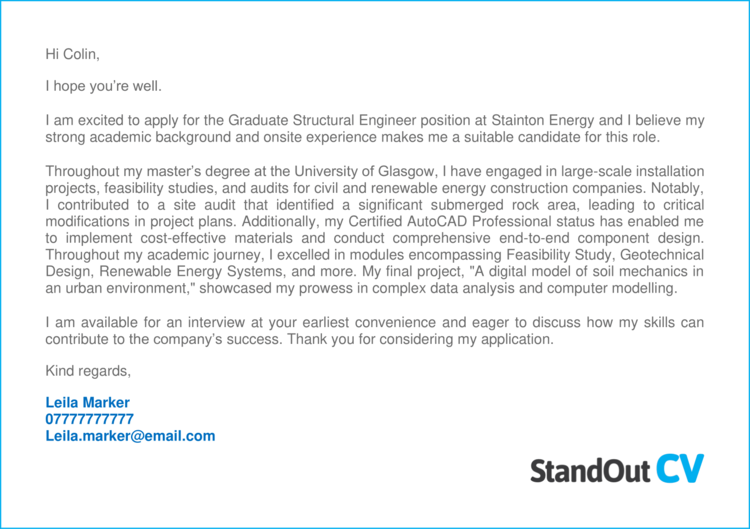
Build your CV now
Graduate cover letter example 2
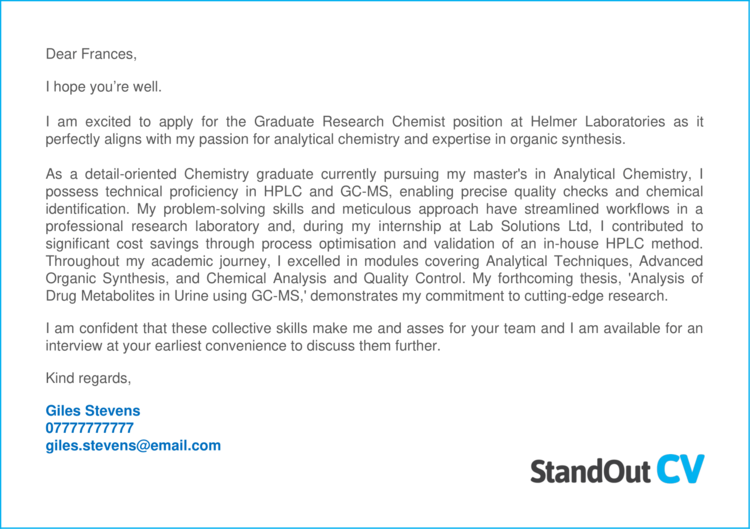
Graduate cover letter example 3
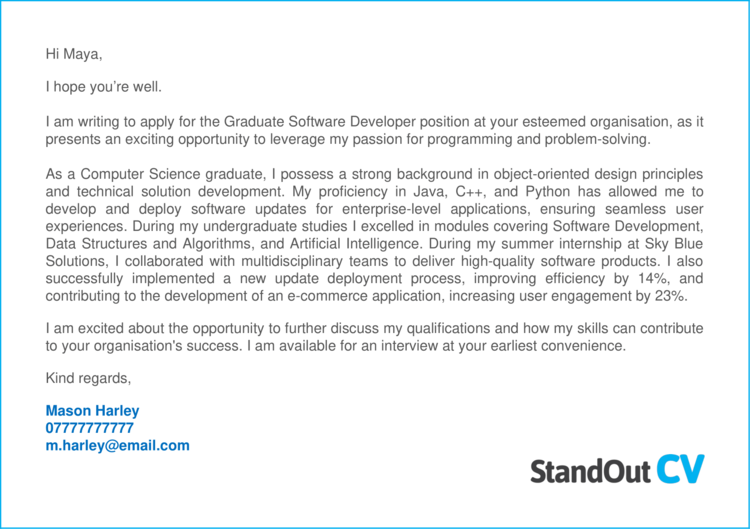
These 3 Graduate cover letter examples will provide you with some good ideas on how to format a cover letter, along with the type of message you should be trying to put across to recruiters .
To further understand exactly how you can write a cover letter that will get you noticed, check out our further guidance.
How to write a Graduate cover letter
Here’s how to write your own winning Graduate cover letter

Write your cover letter in the body of an email/message
When writing your Graduate cover letter, it’s best to type the content into the body of your email (or the job site messaging system) and not to attach the cover letter as a separate document.
This ensures that your cover letter gets seen as soon as a recruiter or employer opens your message.
If you attach the cover letter as a document, you’re making the reader go through an unnecessary step of opening the document before reading it.
If it’s in the body of the message itself, it will be seen instantly, which hugely increases the chances of it being read.

Start with a friendly greeting

To kick your cover letter off, start with a friendly greeting to build rapport with the recruiter instantly.
Your greeting should be personable but professional. Not too casual, but not too formal either
Go with something like…
- Hi [insert recruiter name]
- Hi [insert department/team name]
Avoid old-fashioned greetings like “Dear sir/madam ” unless applying to very formal companies.
How to find the contact’s name?
Addressing the recruitment contact by name is an excellent way to start building a strong relationship. If it is not listed in the job advert, try these methods to find it.
- Check out the company website and look at their About page. If you see a hiring manager, HR person or internal recruiter, use their name. You could also try to figure out who would be your manager in the role and use their name.
- Head to LinkedIn , search for the company and scan through the list of employees. Most professionals are on LinkedIn these days, so this is a good bet.
Identify the role you are applying for
Once you’ve opened up the cover letter with a warm greeting to start building a relationship, it is time to identify which role you want to apply for.
Recruiters are often managing multiple vacancies, so you need to ensure you apply to the correct one.
Be very specific and use a reference number if you can find one.
- I am interested in applying for the position of *Graduate position* with your company.
- I would like to apply for the role of Sales assistant (Ref: 406f57393)
- I would like to express my interest in the customer service vacancy within your retail department
- I saw your advert for a junior project manager on Reed and would like to apply for the role.
See also: CV examples – how to write a CV – CV profiles
Highlight your suitability
The sole objective of your cover letter is to motivate recruiters into to opening your CV. And you achieve this by quickly explaining your suitability to the roles you are applying for.
Take a look at the job descriptions you are applying to, and make note of the most important skills and qualifications being asked for.
Then, when crafting your cover letter, make your suitability the central focus.
Explain why you are the best qualified candidate, and why you are so well suited to carry out the job.
This will give recruiters all the encouragement they need to open your CV and consider you for the job.

Keep it short and sharp
A good cover letter is short and sharp, getting to the point quickly with just enough information to grab the attention of recruiters.
Ideally your cover letter should be around 4-8 sentences long – anything longer will risk losing the attention of time-strapped recruiters and hiring managers .
Essentially you need to include just enough information to persuade the reader to open up your CV, where the in-depth details will sit.
Sign off professionally
To round of your CV, you should sign off with a professional signature.
This will give your cover letter a slick appearance and also give the recruiter all of the necessary contact information they need to get in touch with you.
The information to add should include:
- A friendly sign off – e.g. “Kindest regards”
- Your full name
- Phone number (one you can answer quickly)
- Email address
- Profession title
- Professional social network – e.g. LinkedIn
Here is an example signature;
Warm regards,
Jill North IT Project Manager 078837437373 [email protected] LinkedIn
Quick tip: To save yourself from having to write your signature every time you send a job application, you can save it within your email drafts, or on a separate documents that you could copy in.

What to include in your Graduate cover letter
Here’s what kind of content you should include in your Graduate cover letter…
The exact info will obviously depend on your industry and experience level, but these are the essentials.
- Your relevant experience – Where have you worked and what type of jobs have you held?
- Your qualifications – Let recruiters know about your highest level of qualification to show them you have the credentials for the job.
- The impact you have made – Show how your actions have made a positive impact on previous employers; perhaps you’ve saved them money or helped them to acquire new customers?
- Your reasons for moving – Hiring managers will want to know why you are leaving your current or previous role, so give them a brief explanation.
- Your availability – When can you start a new job ? Recruiters will want to know how soon they can get you on board.
Don’t forget to tailor these points to the requirements of the job advert for best results.
Graduate cover letter templates
Copy and paste these Graduate cover letter templates to get a head start on your own.
I hope you’re well.
I am excited to apply for the Graduate Structural Engineer position at Stainton Energy and I believe my strong academic background and onsite experience makes me a suitable candidate for this role.
Throughout my master’s degree at the University of Glasgow, I have engaged in large-scale installation projects, feasibility studies, and audits for civil and renewable energy construction companies. Notably, I contributed to a site audit that identified a significant submerged rock area, leading to critical modifications in project plans. Additionally, my Certified AutoCAD Professional status has enabled me to implement cost-effective materials and conduct comprehensive end-to-end component design. Throughout my academic journey, I excelled in modules encompassing Feasibility Study, Geotechnical Design, Renewable Energy Systems, and more. My final project, “A digital model of soil mechanics in an urban environment,” showcased my prowess in complex data analysis and computer modelling.
I am available for an interview at your earliest convenience and eager to discuss how my skills can contribute to the company’s success. Thank you for considering my application.
Kind regards,
Leila Marker ¦ 07777777777 ¦ [email protected]
Dear Frances,
I am excited to apply for the Graduate Research Chemist position at Helmer Laboratories as it perfectly aligns with my passion for analytical chemistry and expertise in organic synthesis.
As a detail-oriented Chemistry graduate currently pursuing my master’s in Analytical Chemistry, I possess technical proficiency in HPLC and GC-MS, enabling precise quality checks and chemical identification. My problem-solving skills and meticulous approach have streamlined workflows in a professional research laboratory and, during my internship at Lab Solutions Ltd, I contributed to significant cost savings through process optimisation and validation of an in-house HPLC method.
Throughout my academic journey, I excelled in modules covering Analytical Techniques, Advanced Organic Synthesis, and Chemical Analysis and Quality Control. My forthcoming thesis, ‘Analysis of Drug Metabolites in Urine using GC-MS,’ demonstrates my commitment to cutting-edge research.
I am confident that these collective skills make me and asses for your team and I am available for an interview at your earliest convenience to discuss them further.
Giles Stevens ¦ 07777777777 ¦ [email protected]
I am writing to apply for the Graduate Software Developer position at your esteemed organisation, as it presents an exciting opportunity to leverage my passion for programming and problem-solving.
As a Computer Science graduate, I possess a strong background in object-oriented design principles and technical solution development. My proficiency in Java, C++, and Python has allowed me to develop and deploy software updates for enterprise-level applications, ensuring seamless user experiences. During my undergraduate studies I excelled in modules covering Software Development, Data Structures and Algorithms, and Artificial Intelligence. During my summer internship at Sky Blue Solutions, I collaborated with multidisciplinary teams to deliver high-quality software products. I also successfully implemented a new update deployment process, improving efficiency by 14%, and contributing to the development of an e-commerce application, increasing user engagement by 23%.
I am excited about the opportunity to further discuss my qualifications and how my skills can contribute to your organisation’s success. I am available for an interview at your earliest convenience.
Mason Harley ¦ 07777777777 ¦ [email protected]
Writing an impressive cover letter is a crucial step in landing a Graduate job, so taking the time to perfect it is well worth while.
By following the tips and examples above you will be able to create an eye-catching cover letter that will wow recruiters and ensure your CV gets read – leading to more job interviews for you.
Good luck with your job search!
- TemplateLab
Letters of Intent for Graduate School
40 best letter of intent for graduate school samples.
It’s customary practice for almost all graduate schools to require applicants to submit either a statement of purpose , personal statement, curriculum vitae, or résumé. Aside from this requirement students also need to submit a letter of intent. This letter serves as your intellectual autobiography as an applicant that lists the series of experiences and events of your academic life that motivated you to further your education. The letter should focus on your academic life where you would address specific questions and issues.
Table of Contents
- 1 Letters of Intent for Graduate School
- 2 What is a letter of intent for graduate school?
- 3 Letter Of Intention For Graduate School Examples
- 4.1 How well you follow directions?
- 4.2 To showcase your writing skills
- 4.3 Your attention to detail
- 4.4 Your personal background
- 4.5 Your professional and academic achievements
- 5 How long is a letter of intent for grad school?
- 6 Letters Of Intent University
- 7.1 Opening paragraph
- 7.3 Closing paragraph
- 7.4 Concluding statement
- 8 Tips for writing your letter of intent
- 9 Letters Of Intent For School
- 10.1 Content
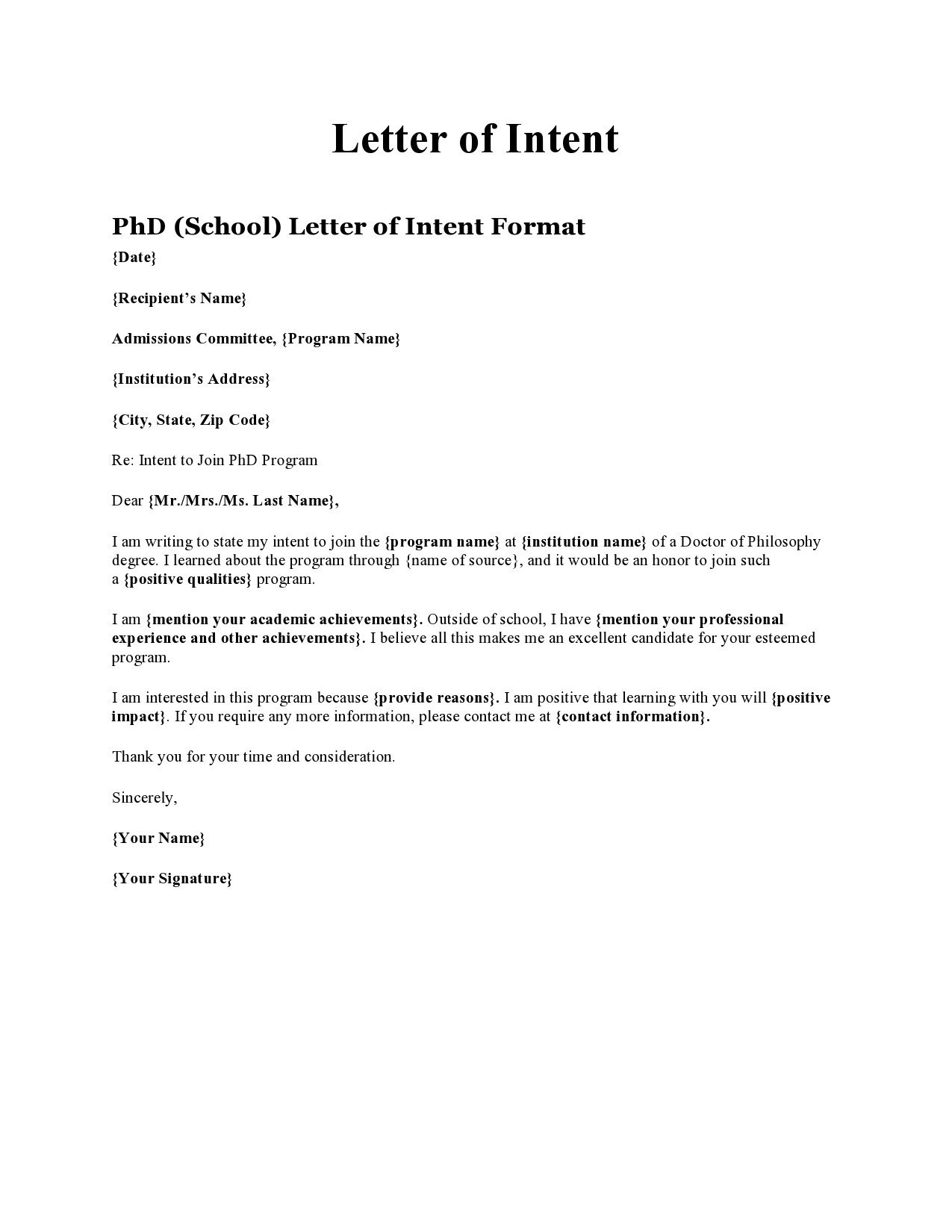
What is a letter of intent for graduate school?
A university letter of intent template usually comes in the form of a brief essay that outlines your skills, goals, and achievements within your field of study. Providing this information will strengthen your application to graduate school. The admissions committee searches for applicants who express a genuine interest in their field and prove that they will become an asset to the program. It’s important that in your letter, you list your professional interests, research, accomplishments, skills, and other success areas.
You should also provide other background information like volunteer or work experience, previous projects, studies, programs, essays, and mentors you’ve worked with as these would substantiate your passion for your field of study.
Also, remember that graduate schools and the programs that they offer vary. There can be slight to the guidelines regarding the required information and in this letter. There are schools that request a personal touch while others prefer that you focus more on your professional and academic accomplishments, goals, and qualities.

Letter Of Intention For Graduate School Examples
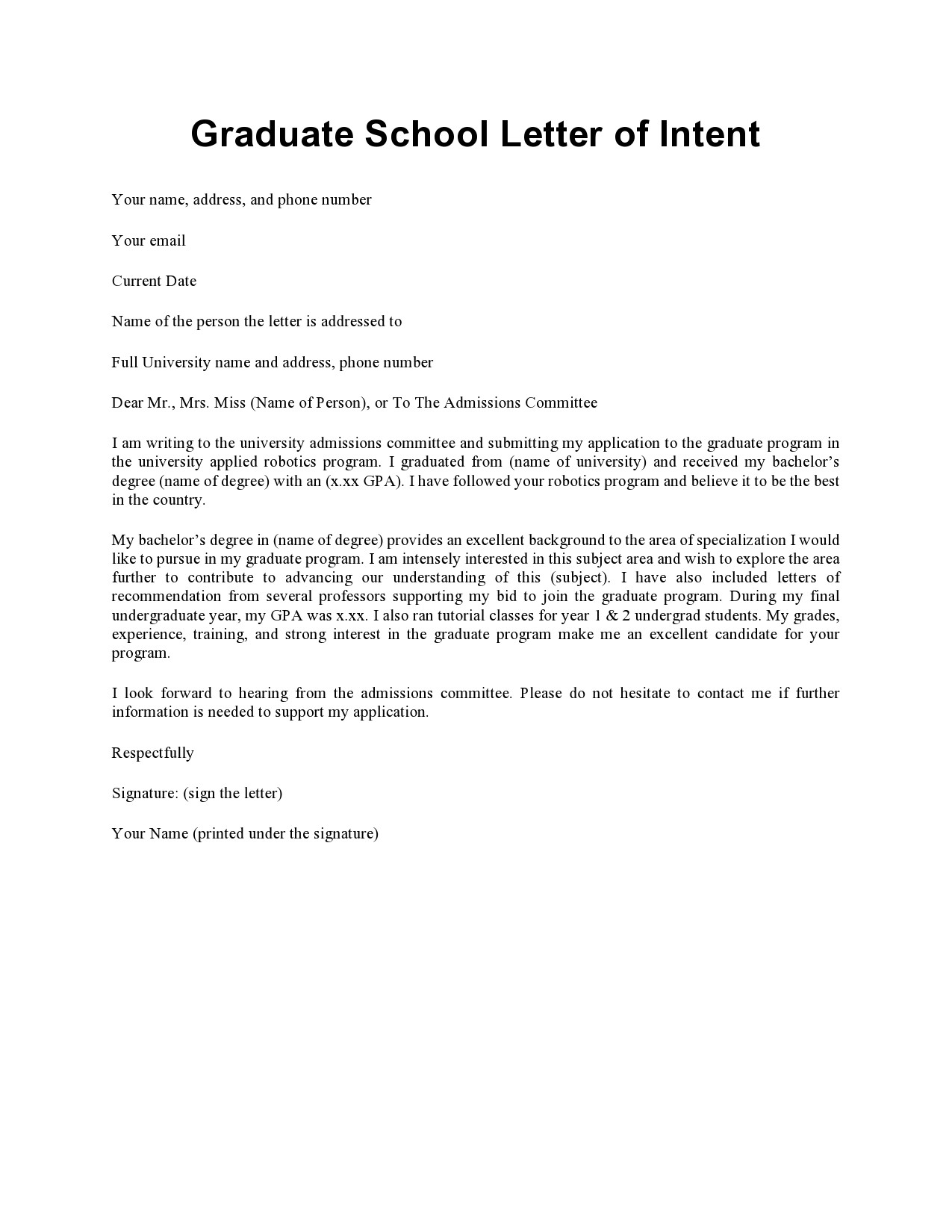
What is the purpose of a letter of intent for graduate school?
A graduate school letter of intent for school should contain more information about you that will convince the admissions committee to consider your admission request. The specifics of your letter will depend on the program you’re applying for and what you want to include in it. In general, the letter serves the following purposes:
How well you follow directions?
The worst way to make an impression is by not following instructions. By fulfilling the requirements of the school, you’re already showing respect for the process. This also shows that you’re willing to make the effort when they need you to do something in the future.
To showcase your writing skills
One of the reasons why you need to submit this letter is to show how articulate you are as a writer. How you structure the letter will show whether you can write a well-edited and professional letter with clear prose and the correct format.
Your attention to detail
The letter is also a way for the admissions committee to find out about your attention to detail. A letter that is well-researched, well-written, and focused will show the committee that you pay attention to the school and what they ask of you. Make sure that your letter has the correct grammar, format, punctuation, and spelling as this will show your level of care for details that you could also apply to your studies.
Your personal background
This letter isn’t all about your ability to write. The letter is also about yourself. It’s your opportunity to introduce yourself to those who will read your application. This is why you should also show them your personality, how much you care about your field of study, and your reasons for wanting to pursue your studies. This way, when you meet the committee for an interview, they will already have an idea of who you are.
Your professional and academic achievements
Showcasing your achievements is the most important purpose of this letter. The items to include here could make you an excellent candidate for the schools. Be very careful when writing this part. Don’t make it sound like a rehash since the committee already knows this information from your application. Instead, provide context for your application where you talk about your experiences in the best possible light. This way, the committee will better understand your application.
How long is a letter of intent for grad school?
Although you can write a letter of intent for graduate school using a personal or formal approach, one important thing to remember is to make it precise, short, informative, and concise. It should contain all of the essential sections and elements. The key to writing a successful letter is to prepare well and pay attention to all of the details. Make sure to include all of the vital sections and points. In terms of length, keep it between 300 to 450 words and not longer than 2 pages.
Letters Of Intent University
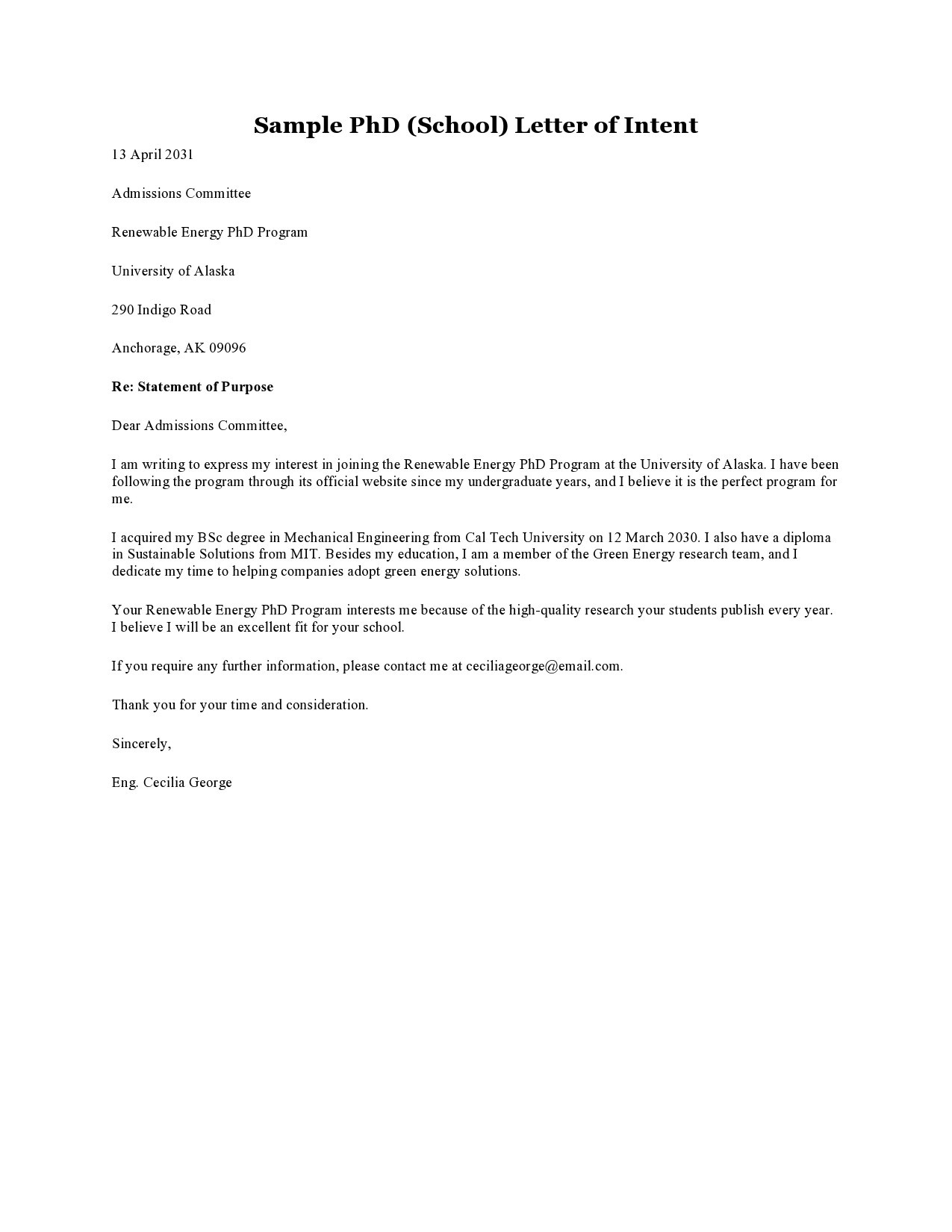
What should be in a letter of intent for graduate school?
In most universities, a letter of intent for grad school is part of the admissions process, especially when you will apply to graduate programs that are research-oriented. A sample letter of intention for graduate school is closely scrutinized by the admissions officers since the letter is the venue where applicants talk about themselves, their goals, and their reasons for wanting to attend graduate school.
Since the admission board will examine your letter closely, you have to be well-organized, written, and constructed. The university will use the letter to determine if your career goals are in sync with the program you’re applying to. To make a great letter, it should include the following:
Opening paragraph
Open your letter by going straight to the point. Mention the program you’re applying to, whether this is a doctorate or master’s degree.
Describe the experiences that served as the basis of your future graduate work. Also, discuss how you developed your interest in the field, and your academic plans to reach your goals. Talk about your undergraduate studies in general, your major, and your specialization within your major. Mention any academic accomplishments and achievements too. Include any specific learning experiences that show your inspiration and motivation for continued research or study like:
- Independent research or study courses
- Undergraduate research, conferences, or presentations
- Teaching assistantships
- Published work
- Research internships
- Laboratory experiences
- Honors thesis
- Seminar courses
- Independent writing
- Any education abroad
- Academic honors
- Closely-related work experiences
Closing paragraph
Explain using specific terms the reasons why you want to attend the university and the specific program. Also, describe how the graduate curriculum of the university matches your long and short-term career and academic goals. Also, show evidence of how you researched their program, faculty, research, and departmental facilities and resources. Indicate how your intellectual and academic interests match with the department or program’s research interests.
Concluding statement
In a concise manner, provide a summary of why you believe you have the skills and experience needed for the university’s program. Explain that you’re motivated and qualified and that you plan to succeed in graduate research and study.
Tips for writing your letter of intent
It is in the body of your letter where you will introduce yourself to the admissions committee and make your case. There are many ways to do this but the one you should choose will mainly depend on your purpose for writing the letter. Although the approaches may vary widely, they should have the following goals:
- To guide the attention of the readers to specific elements of your application including certain experiences, accomplishments, skills, and more.
- To personalize your application. This approach will give the readers a more holistic view of who you are and why you’re applying.
The best approach for you will mainly depend on your background and the other information in your application. For instance, if you will apply and you already have an impressive resume and GPA with very high assessment scores, you might not need an element of personalization to set yourself apart. If this isn’t the case, you can emphasize your most notable achievements. In the case where you have stellar qualifications, the organization of your letter would be fairly straightforward. Here is how you can pattern your letter:
- You can use the first paragraph to state the opportunity you’re applying for.
- The second paragraph could be about your skills and how you have shown or used them.
- End with your career or educational background information related to your application.
There could also be a case where your curriculum vitae is just a little above average or if you struggled in the past with personal issues that caused you to get a low GPA. In such a case, it’s recommended to take a different approach. Narrate your personal story instead of your achievements.
By giving your application context and identity, you might draw the attention of the admissions committee to who you are and how passionate you feel about the program you’re applying to. In this case, how you organize your letter may vary depending on what you want to say and your story. Usually, you would do this chronologically although it’s recommended to put some thought into how you plan to organize your letter. After you write a draft, review it again to make sure that you have a good strategy.
An ideal letter should always be short. precise, informative, and concise. It should contain all of the essential and expected elements. Avoid using clichés and generalizations. Instead, focus on your career and academic goals. It also isn’t recommended that to blow your horn about how hard-working, conscientious, and diligent you are.
Often, the admissions committee might see this as something negative. It’s better to show prudence by only providing the readers with relevant information in your application. It also isn’t advisable to include extraneous points or information that don’t communicate your letter’s intent effectively. Aside from the crucial suggestions and observations discussed, here are some tips that will help you write a successful letter:
- Gather information from the program guide, college website, or student prospectus before writing your letter.
- Analyze the information you have gathered to find out if the program is right for you and it covers all of your objectives.
- Brainstorm and take down notes that you could potentially include in your letter.
- Prepare a template and start writing your first draft.
- Review your draft, then make any revisions changes if needed.
- Write your second draft. Review the letter, then check any errors in grammar, spelling, punctuation, typos, and vocabulary.
- Have a few prominent people review your draft. These people should be within your family or people at school who you trust. Choose those who have a strong command of the English language and have at least some experience writing letters like the one you’re making.
- Make the necessary corrections and changes based on the feedback you receive.
- Prepare your final letter, then go through it one last time.
- Print your letter on crease-free, crisp sheets of plain white paper. Don’t fold the letter. If the school requires that you submit the document online, create a PDF version, then email it according to the instructions.
Letters Of Intent For School
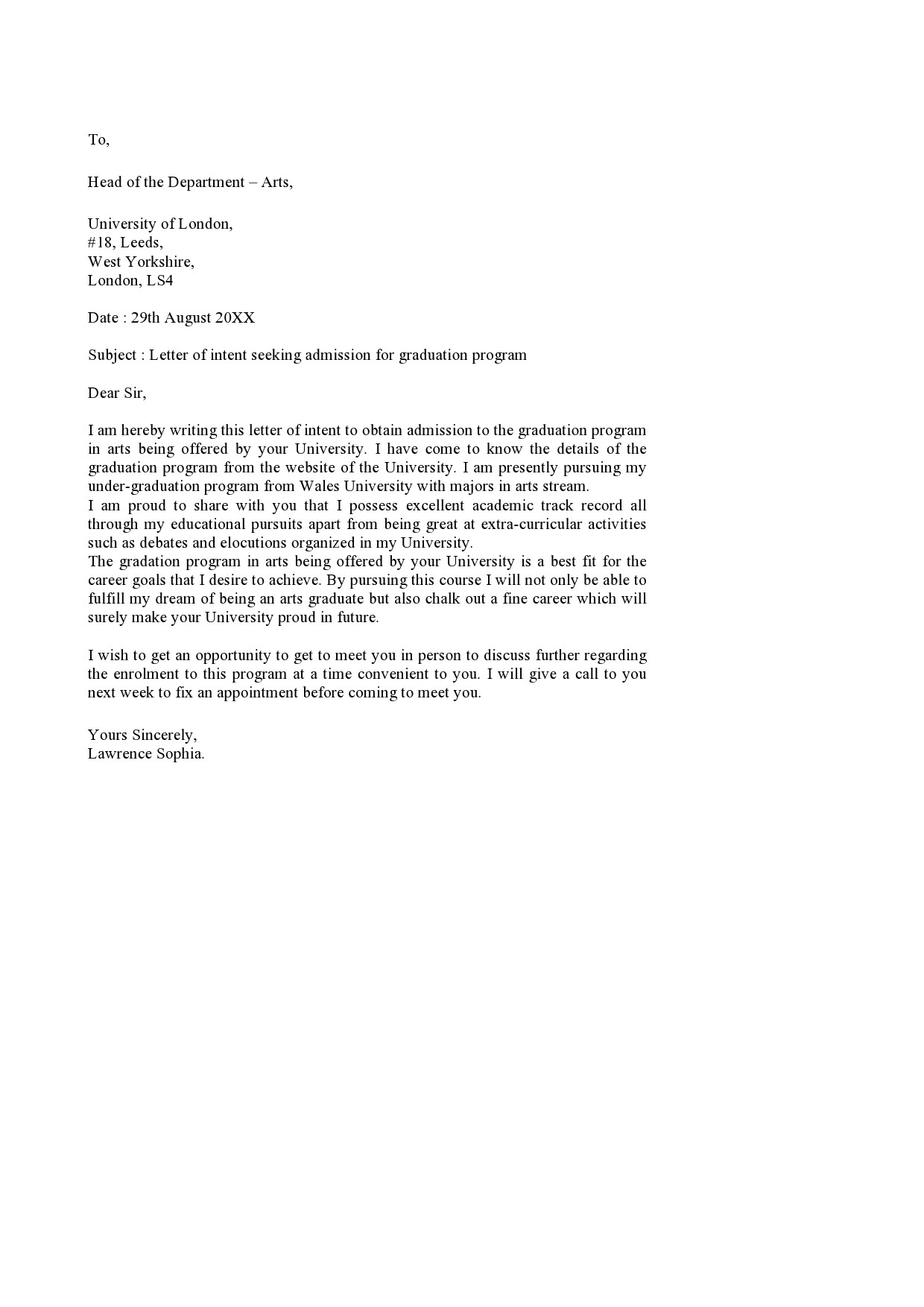
Formatting your letter
Formatting your letter is also important. This is highly recommended because a well-formatted letter will immediately draw the attention of the readers so they will feel compelled to read it. How you format your letter will depend on how you will write the content. You need to make sure to present your content properly. It’s recommended to keep the following stylizing and content tips in mind when formatting your letter.
- Be as straightforward and concise as possible.
- Use an active voice, not a passive one.
- Be both precise and accurate.
- Use transitions to make connections to each of the paragraphs to ensure a smooth flow.
- Limit the number of words you use to between 300 and 450 unless otherwise specified.
- Limit the number of pages to 2 unless otherwise specified.
- Use a simple, legible, and clear official or business font for your letter.
- Use a font size between 10 to 13pts depending on which font you use.
- Space lines by 1.2pts if you think the single-line spacing is the best option.
- Don’t use bold colors in the header of your letter or anywhere else.
- Don’t use italics unless you need to emphasize a certain point.
Maintain equal and reasonable margins all around your letter.
More Templates
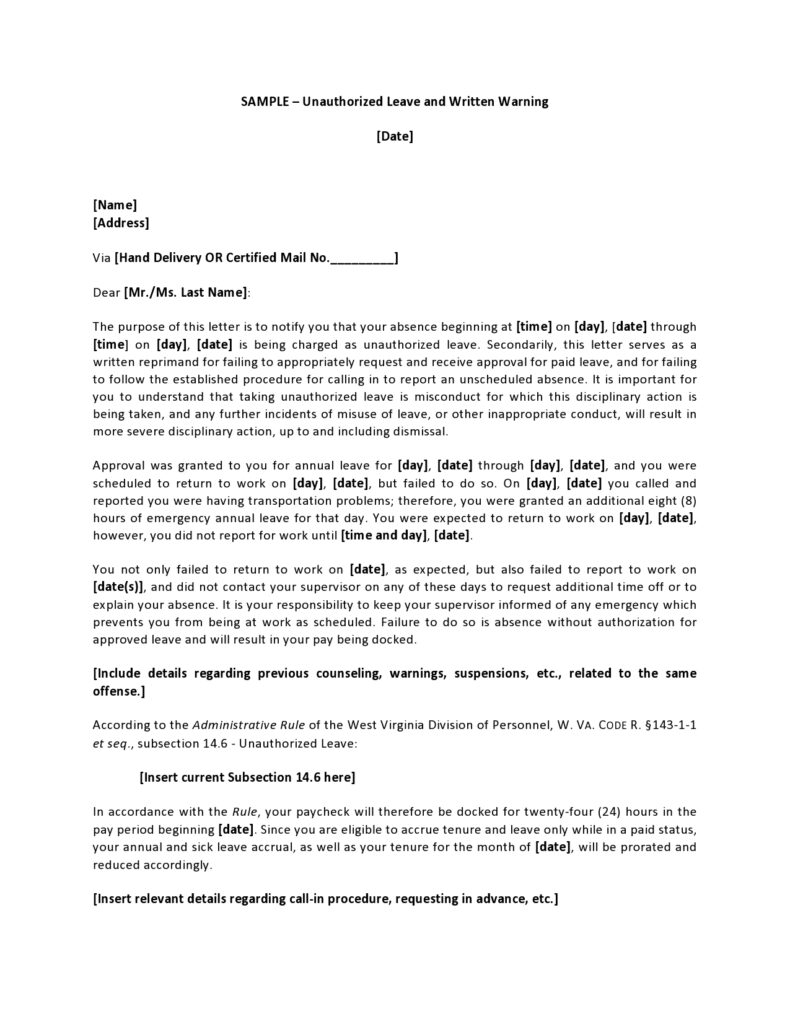
Job Abandonment Letter
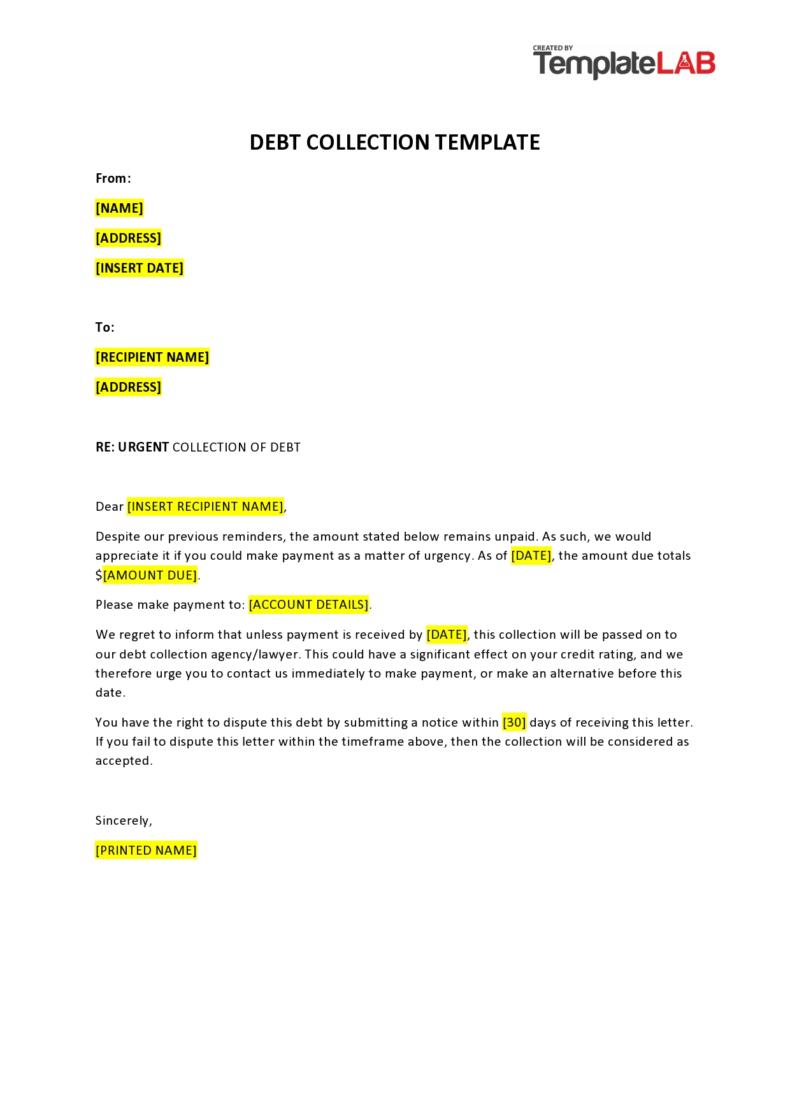
Collection Letter Templates
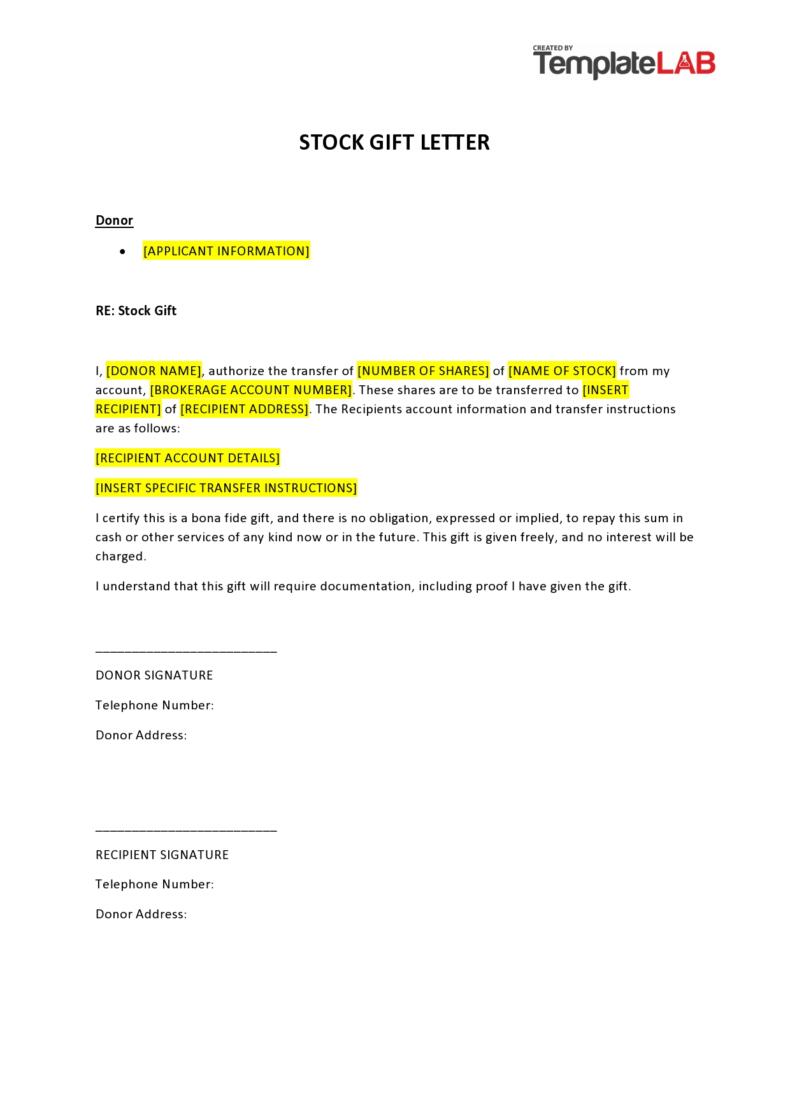
Gift Letter Templates
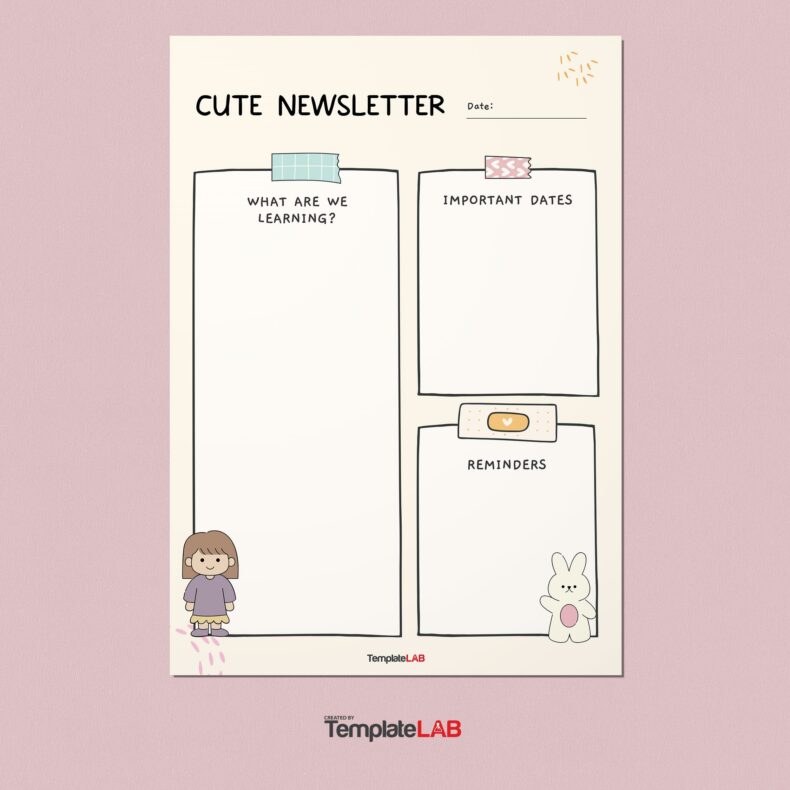
Preschool Newsletter Templates
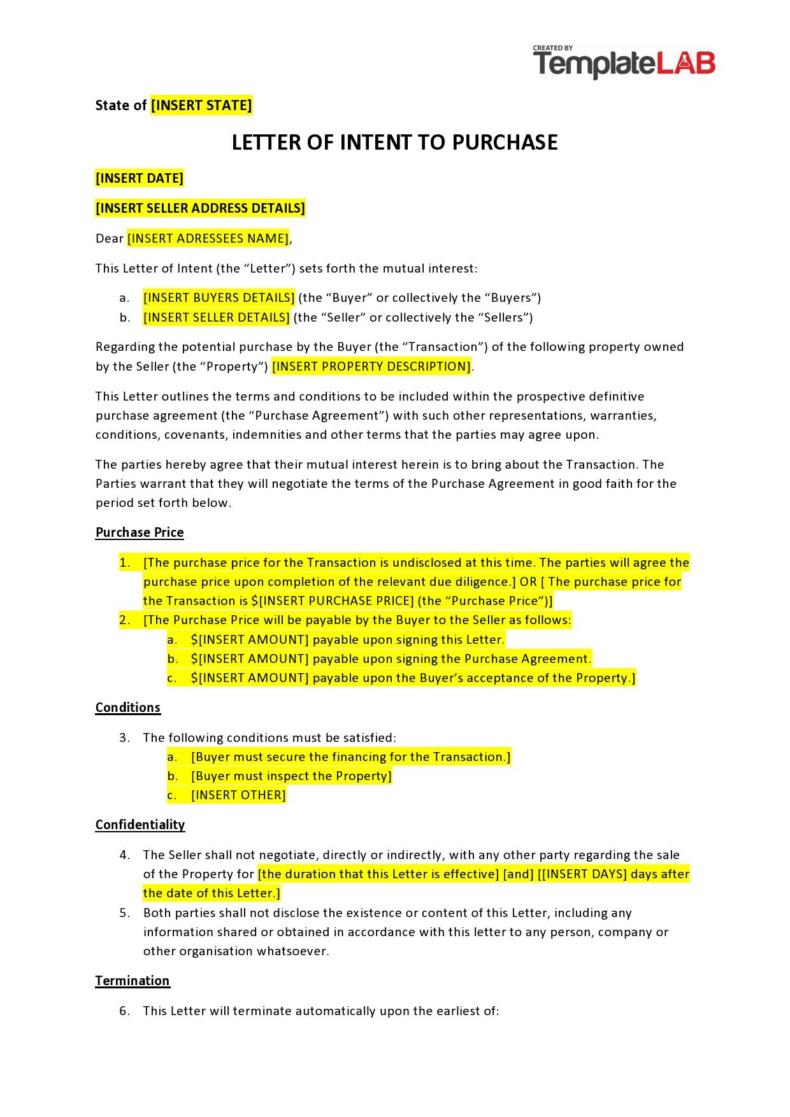
Letter of Intent Templates

Leave of Absence Letters
Testimonials
Free Resources
PrepScholar GRE Prep
Gre prep online guides and tips, do you need a cover letter for graduate school applications.
Applying to graduate school means getting together a lot of materials. Most likely, you’ll need transcripts, letters of recommendation, a CV or resume, and a statement of purpose—but do you also need a cover letter for graduate school?
Read on to learn whether you need to submit a graduate school cover letter and how to make one. We’ll also give you six essential tips for making your cover letter for graduate school shine.
Do You Need a Cover Letter for Graduate School?
Generally, you don’t need to submit a cover letter with your graduate school application. Since most programs require you to input your personal information using an online application system, you usually won’t have to submit a separate cover letter as well.
In fact, your statement of purpose already accomplishes most of what a cover letter does: it introduces who you are as well as your academic interests, accomplishments, and goals. Therefore, you most likely won’t need to write a cover letter for your application.
Rarely, a program may ask you to submit a cover letter with your application (or allow you to submit one, even if it’s not required). If you are applying to graduate school by mail, you may want (or need) to include a cover letter in order to highlight your interest in the program and ensure it reaches the correct department.
However, most programs require you to apply online, so you can’t send in an application by mail unless your program allows it. Aside from these relatively isolated cases, you shouldn’t need to submit a cover letter for graduate school.
That said, if you’re applying for a school-related job or internship, it’s common (and often necessary) to submit a cover letter with your application. For example, if you were a current grad student looking to conduct research under a specific professor, you could submit a cover letter to that professor explaining who you are and why you’re interested in conducting research with him or her.
Quick side note: we've created the world's leading online GRE prep program that adapts to you and your strengths and weaknesses. Not sure what to study? Confused by how to improve your score? We give you minute by minute guide.
You don't NEED a prep program to get a great GRE score. But we believe PrepScholar is the best GRE prep program available right now , especially if you find it hard to organize your study schedule and don't know what to study .
Click here to learn how you can improve your GRE score by 7 points, guaranteed .
Or, let’s say you’re applying for a part-time job or internship at your school. In this case, you’ll most likely need to submit a cover letter to introduce yourself, your skills, and your employment history.
How to Write a Cover Letter for Graduate School: Step by Step
If you plan to submit a graduate school cover letter, it’s important to know what to include on it so that you can make a positive impression on the admission committee (or employer).
In this section, we go over the six essential steps for writing a great cover letter for graduate school. With each step, we give you examples using our original graduate school cover letter sample .
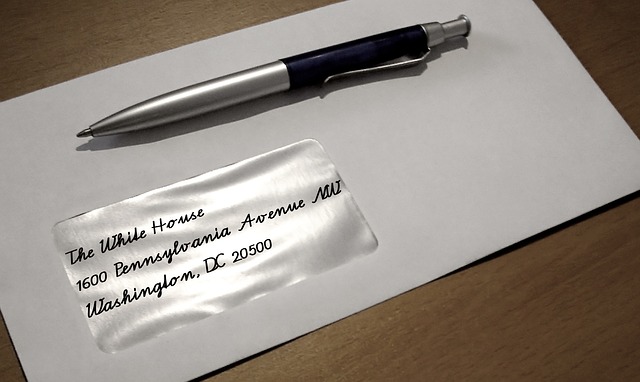
Step 1: Address Your Letter
A clear and organized cover letter is key to making a good impression. Open your letter with your name and contact information followed by your recipient’s name and contact information (as if you were addressing an envelope).
Write your full name first and then use the lines directly beneath it to write your home address. You may also include your phone number and/or email address on a fourth or fifth line after your home address; however, this is optional.
Next, insert a blank space after your contact information and write today’s date. You may use the month-day-year format (e.g., September 4, 2017) or the more formal day-month-year format (e.g., 4 September 2017). Either is fine!
Leave another blank space after the date and write your recipient’s contact information (i.e., to whom you’re sending your cover letter and application).
The name you use here depends on where you’re sending your application. If applying for admission to a graduate program, address your letter to either the head of the department or the head of the admission committee. If you’re not sure whom to address your letter to, contact your program and ask.
Write the name of the recipient with his or her title, if applicable. On the next line, write the name of the department/school for which the recipient works along with the address of the department/school.
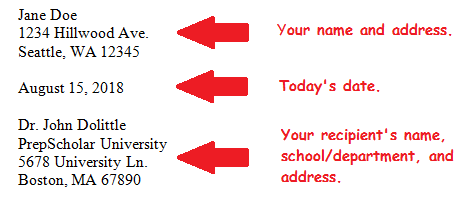
Step 2: Use a Salutation
Like all letters, you should begin your cover letter with a greeting, or salutation, to your recipient.
The most common salutation for cover letters is “Dear [Recipent’s Name]” followed by a comma or a colon. A comma is a little less formal than a colon, but either mark is acceptable.
If you can’t figure out whom to address your cover letter to, write, “Dear Head of Admissions,” “Dear Graduate Coordinator,” or “To Whom It May Concern.” All of these salutations are acceptable, though less personal than a name; thus, it’s best to find a specific person to address your letter to.
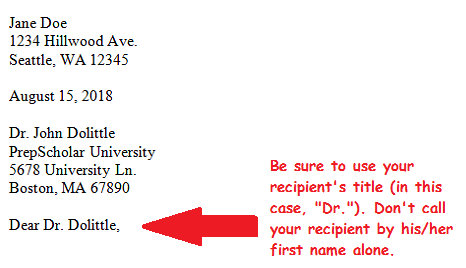
Step 3: Introduce Yourself (Paragraph 1)
Now, we get to the heart of the cover letter. Use this first paragraph to briefly introduce yourself and what program or position you’re applying for. Also, talk a little about what your background in the field is, why you’re interested in this position/program, and how you heard about it.
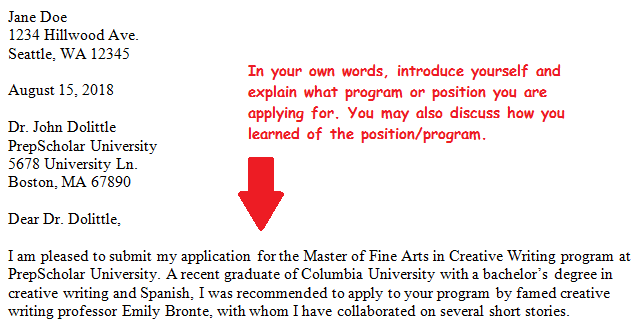
Step 4: Summarize Your Background and Qualifications (Paragraph 2)
For this next paragraph, you’ll give a brief summary of any relevant skills and experiences you have that make you an ideal applicant for this program/position. Be sure to focus on transferrable skills— skills that can be applied across a range of fields and positions.
In addition, think deeply about why you’re drawn to this program/school and what it can do for you. What are your research interests and how will this program help you fulfill them? What do you plan to do after completing the program?
Finally, consider how you’ll fit with the program. Do your interests match what the program offers or specializes in? Are there any specific professors or faculty members you wish to work with?
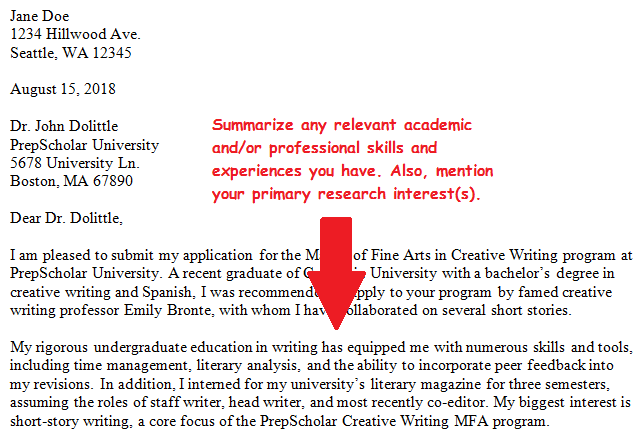
Step 5: Thank Your Reader and List Enclosed Materials (Paragraph 3)
The final paragraph will be a short concluding paragraph in which you thank your reader(s) and give a list of enclosed materials.
When listing what’s enclosed, you may use commas or insert a short bullet list. Normally, you’ll enclose some or all of the following materials:
- Application for the program/position
- Statement of purpose
- Transcripts
- Letters of recommendation
Be sure to list the enclosed materials in the order in which they’re enclosed. Programs may ask you to submit materials in a specific order, so check that you’re following your program’s directions exactly (and aren’t forgetting to include any documents either).
Another option is to include a list of your enclosed materials at the end of your letter instead of in this final paragraph (see step 6 for more information).
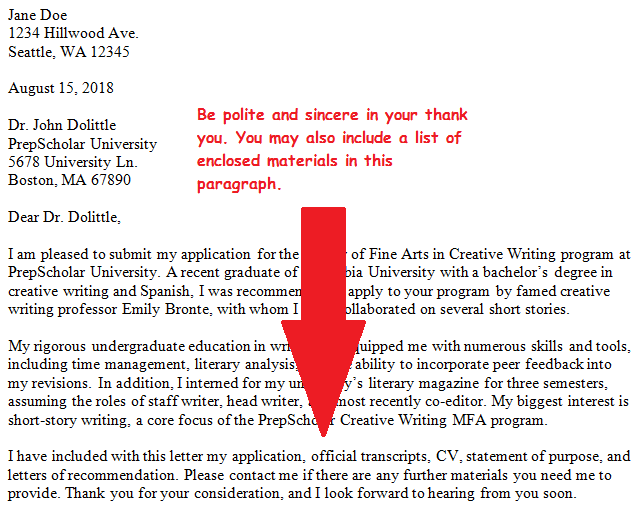
Step 6: Add a Closing Greeting
The last step is to wrap up your letter with a polite closing salutation. There are many greetings you can use to close your letter, such as “Sincerely,” “Yours Truly,” “Warm Regards,” and “Respectfully Yours.”
Want to improve your GRE score by 7 points? We have the industry's leading GRE prep program. Built by world-class instructors with 99th percentile GRE scores , the program learns your strengths and weaknesses through machine learning data science, then customizes your prep program to you so you get the most effective prep possible.
Try our 5-day full access trial for free:
After this greeting, insert a blank line and then type your name. Traditionally, you’d insert three or four blank spaces before typing your name; these spaces would then be used to sign your name in pen. Nowadays it’s OK to skip this step, especially if you’re trying to save space!
Take care to avoid any overly sentimental greetings, such as “Love” or “Forever Yours,” as these are inappropriate for a professional cover letter. Likewise, avoid using the single-word closing “From,” as this can sound a bit rigid and emotionless.
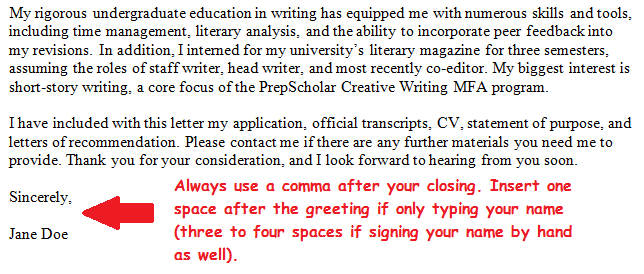
As I mentioned before, you may also insert a list of enclosed materials after your greeting (if you didn’t list them in your concluding paragraph). To do this, insert a space after your typed name and write “Enclosed,” “Enclosure,” or “Enc” followed by a colon. Then, insert a bullet list of the enclosed materials (in the order in which they’re enclosed). Here’s an example:

6 Tips for a Great Graduate School Cover Letter
Your cover letter for graduate school needs to make a great first impression on your program’s admission committee. Here are our top tips for ensuring your cover letter exceeds even your own expectations.
#1: Use a Polite, Professional, and Positive Tone
Because your cover letter is the first document the admission committee will see, be sure to do the following:
- Avoid slang and casual phrases. Nothing says unprofessional like “gotta” and “gonna,” so limit these words to conversations only. Remember, the cover letter is a formal document, much like an essay for school, so it’s better to err on the side of too formal than on the side of too casual.
- Be enthusiastic. Nobody wants to admit an unenthusiastic applicant, so use strong, positive words to convey your pleasure in applying to the program. Stick with upbeat words and phrases such as “happy,” “pleased,” “excited,” “thankful,” “accomplished,” etc.
- Thank your readers. Being polite is all about saying “thank you.” In your letter, thank your readers for their consideration and make it clear that you understand they’re spending a lot of time looking over your application. Don’t thank them over and over, though—this wastes valuable space and ultimately makes you sound desperate!
#2: Be Concise
The cover letter is not the time to delve deep into your personal reasons for pursuing a graduate degree (this is for your statement of purpose!), so be concise without forgoing critical facts about you and why you’re applying.
You’ll typically want to keep your cover letter at a maximum of one page, with no more than two to four paragraphs. Since this letter is short, avoid getting verbose: don’t use tons of flowery language or open with a broad statement. Rather, get straight to the point of who you are, what program you’re applying to, and why you’re a qualified candidate.
If you’re not sure what to include in your letter, read through your resume/CV and statement of purpose to make note of what you’ve already mentioned in those documents. Then, cut down (or remove completely) any similar parts in your cover letter. In short, don’t repeat information you’ve already talked in detail about in other parts of your application.
#3: Use a Neutral Font Face, Size, and Color
Because the cover letter is a professional document, you’ll want to keep its format simple and elegant, as you would a school essay.
Stick with basic “generic” fonts, such as Times New Roman, Arial, Tahoma, and Calibri. Don’t get creative by choosing fonts such as Comic Sans and Chiller—this will make your cover letter look wildly unprofessional and implies you’re not taking the application process seriously.
In terms of size, don’t use a super small or super large font size. You shouldn’t need to squeeze in tons of information on your cover letter, so an 11- or 12-point font should work fine.
Finally, use a regular black font color (on regular white computer paper). Wacky colors, like wacky font faces, will only make you look unprofessional!

#4: Single-Space Text
Unlike school essays, for which you always double-space and indent your paragraphs, the cover letter is single-spaced and uses block paragraphs. This means that instead of pressing the “tab” button to indent each paragraph, you’ll separate each paragraph from the next using a single blank space.
You should also insert a blank line when indicating any sort of transition from one element in your cover letter (e.g., a salutation) to another (e.g., a paragraph). Use our graduate school cover letter sample to better understand how spacing should look.
#5: Align Everything Left
On cover letters, everything needs to be aligned left, from your address and date to your salutations and paragraphs. As I mentioned above, you do not need to indent your paragraphs, so keep these aligned left as well.
There’s no need to justify your paragraphs. In fact, I advise against doing this, as the justification tool on Word often inserts bizarre spacing between words, making paragraphs more difficult to read.
#6: Edit and Proofread
Like every part of your application, take time to edit and proofread your cover letter. Go over the technical and stylistic sides of your writing: make sure your paragraphs flow well together, and check that you haven’t made any glaring grammar, spelling, or formatting mistakes. (For specific tips on formatting, see tips 3-5 above as well as our graduate school cover letter sample .)
I also strongly suggest getting someone else to read your cover letter. A separate pair of eyes will ensure that your letter is as clear and cogent as it can be.
Remember, your cover letter is the first part of your application the admission committee will see, so it must be as close as possible to perfect. Typos and errors will set a negative tone for the rest of your application, even if your other materials are strong. Don’t let the cover letter be your downfall!

Recap: How to Write a Cover Letter for Graduate School
Cover letters for graduate school are generally quite rare. Most programs require you to fill out your personal information and submit materials online, so you won’t usually need to submit a cover letter with your application.
That said, if you are applying for a graduate program by mail, have been asked to submit a cover letter, or are applying for a school-related job or internship, you’ll need to know how to write a cover letter for graduate school.
A graduate school cover letter must include the following elements:
- Your name and address
- Your recipient’s name and address
- A greeting (usually “Dear [Name]”)
- Two to three paragraphs explaining who you are, what you’re applying for, and why you’re a qualified applicant
- A concluding paragraph thanking your recipient for considering you and including a list of any enclosed materials (e.g., a statement of purpose, transcripts, letters of recommendation, etc.)
- A closing greeting with your name (typed, or typed and signed)
Finally, to make a great cover letter for graduate school, be sure to follow these six tips:
Want to improve your GRE score by 7+ points?
Check out our best-in-class online GRE prep program . We guarantee your money back if you don't improve your GRE score by 7 points or more.
PrepScholar GRE is entirely online, and it customizes your prep program to your strengths and weaknesses . We also feature 2,000 practice questions , official practice tests, 150 hours of interactive lessons, and 1-on-1 scoring and feedback on your AWA essays.
Check out our 5-day free trial now:
- Use a polite, professional, and positive tone
- Use a neutral font face, size, and color
- Single-space text
- Align everything left
- Edit and proofread
You should now have no trouble creating a strong cover letter for graduate school!
What’s Next?
You know how to write a graduate school cover letter—but what about a CV? A resume? Check out our guides on how to write a CV and resume to learn what to include, what to leave out, and how to raise your odds of getting accepted to your program. And if you get stuck, use our high-quality resume and CV templates as a guide!
Need to write an essay for graduate school, too? Learn how to write a personal statement and how to write a statement of purpose using our in-depth guides and expert tips. We’ve also got samples of both personal statements (coming soon) and statements of purpose .
Ready to improve your GRE score by 7 points?
Author: Hannah Muniz
Hannah graduated summa cum laude from the University of Southern California with a bachelor’s degree in English and East Asian languages and cultures. After graduation, she taught English in Japan for two years via the JET Program. She is passionate about education, writing, and travel. View all posts by Hannah Muniz

- Affiliate Program

- UNITED STATES
- 台灣 (TAIWAN)
- TÜRKIYE (TURKEY)
- Academic Editing Services
- - Research Paper
- - Journal Manuscript
- - Dissertation
- - College & University Assignments
- Admissions Editing Services
- - Application Essay
- - Personal Statement
- - Recommendation Letter
- - Cover Letter
- - CV/Resume
- Business Editing Services
- - Business Documents
- - Report & Brochure
- - Website & Blog
- Writer Editing Services
- - Script & Screenplay
- Our Editors
- Client Reviews
- Editing & Proofreading Prices
- Wordvice Points
- Partner Discount
- Plagiarism Checker
- APA Citation Generator
- MLA Citation Generator
- Chicago Citation Generator
- Vancouver Citation Generator
- - APA Style
- - MLA Style
- - Chicago Style
- - Vancouver Style
- Writing & Editing Guide
- Academic Resources
- Admissions Resources
Graduate School Letter of Recommendation Examples 2022-2023
Grad school recommendation letters are an essential part of every graduate school application package–even in this (almost) post-COVID era of remote work and Zoom classes. Nearly all applications to graduate school still require at least two recommendation letters from individuals who can discuss your abilities, competencies, and personal character in a coherent way and recommend you for admission to graduate school.
Many referees have difficulty writing these recommendations themselves (for language issues or simply because they are busy) and some rely on the applicant to pen the draft of the letter and receive confirmation before submitting it to the graduate school. But regardless of who is writing the letter, there are a few key elements the recommender needs to include to craft a stellar recommendation for their graduate candidate.
Who should write a recommendation letter for graduate school?
Choosing which professors, supervisors, or advisors to request a graduate school recommendation letter from can be somewhat overwhelming. Should you choose someone who does not know you personally but who has connections to your target graduate school? If a famous professor writes you a grad school recommendation letter, will this automatically give you an advantage with the admissions committee?
In general, graduate recommendation letters should come from people who know you well, who respect you enough to say glowing things about you as a student and researcher, and who hold positions in school or work that are above your own. At least one letter of recommendation should be submitted from a past or current professor or academic advisor.
Another could be from someone in a slightly different role, including an employer, a research adviser, a senior colleague, or a professor from a different department or kind of class (e.g., a discussion class professor instead of a lecturer). No matter who it is, the recommender should know the applicant and recognize their accomplishments. It also helps if the recommender understands some details about the program to which their candidate is applying.
Here are some guidelines to follow when choosing who to ask for letters of recommendation for graduate school. Select someone who:
- Knows you well and can answer positively. Choose an individual who you have spent time with outside the classroom if possible. They should also be familiar with your career goals and hold a favorable view of you.
- Has known you for quite a while. A recommendation letter for graduate school carries more influence if the person has known you for months or years instead of months. If you can, find someone who knows you from various contexts, such as a professor who is also your advisor.
- Can speak to your strengths in relation to your graduate program. Choosing a finance professor to write your recommendation letter for an MBA program would be a good idea because they can write about the qualities that will aid you in pursuing an MBA (qualities you can also include in your MBA essay ) and a broader career in business.
- Has substantive stories to share about you. Who was fortunate enough to see you succeed in an academic, extracurricular, or professional setting? Having someone write your LOR who has good stories to share about you is certainly going to benefit you more than someone whose class you took with two hundred other students.
How to Request a Letter of Recommendation for Graduate School
Knowing how to request a letter of recommendation for graduate school can directly impact the quality of the letter your referee writes for you. Show respect and consideration for the time that your recommender is taking to write a glowing review that will get you into graduate school and positively impact the rest of your life.
With this in mind, it may seem obvious that the very best way to ask for a letter of recommendation for graduate school is to do so in person. While this isn’t possible for all students (due to availability or schedule), it is the best route if you want to ensure that your LOR is not only written on time, but includes all the positive information about you that admissions committees want to see in a graduate candidate. When you cannot ask in person, sending an email is an appropriate second-best option. But remember to always be cordial and polite when making this request.
What information should be included in a graduate recommendation letter?
Your referral letter should cover a range of skills, from academic abilities to research experiences, to applied experiences in and out of class. As the recommender, your letter should clearly answer some specific questions:
Your letter of recommendation should cover a range of skills, from academic abilities to research experiences, to applied experiences in and out of class. As the recommender, your letter should clearly answer some specific questions:
- What is your relationship with the student?
- Why should the graduate faculty listen to your opinion? (include your status, title)
- What makes this student special? (discuss their characteristics, qualities, traits)
- What specifically did this student do to impress you? (discuss their accomplishments, habits in class)
- What makes this student qualified for graduate school and for this program? (include specific courses or interests of the student in addition to abilities and traits)
- What do you know about the program the student is applying to?
What information does the LOR recommender need from me?
The recommender should be given sufficient time to write (and/or confirm) the letter. If it has been a while since you were last in contact, sending a background information file will make things easier. Include the following information so that the recommender can use a few details to bolster their letter:
- Classes the student has taken with the recommender
- Experiences you have shared
- Transcripts
- Research experience and internships
- Awards and achievements
- Academic/career goals
- Relevant professional experience
In addition to background information, make sure that the recommender has the necessary information to plan the writing in a timely manner and target the letter as much as possible:
- Graduate program application due date
- Copy of recommendation forms (if applicable)
- Instructions for submitting LORs (hard copy, soft copy, or direct to school)
- Details about the program and school the student is applying to
What style of writing should be used in a recommendation letter?
Although the letter of recommendation is more informal than academic writing, you should make sure that your language has no grammatical or mechanics errors and that it is of an academic level that reflects the author’s educational level and qualifications. Apply the following standards to the writing and the essay-drafting process:
- Make your language more personal in tone than research writing.
- Use the active voice and first-person point of view more often.
- Write chronologically, starting from important traits and then moving on to actions and achievements.
- Use lots of details—list course names, scores, and specific achievements of the student.
- Edit your letter before submitting it to the graduate admissions faculty.
How to Write a Grad School Letter of Recommendation Letter: LOR Outline
A well-structured recommendation letter (like any organized essay) will guide the reader logically towards an understanding of why this student is worthy not only of praise but of admission to graduate school. Grad school requires quite a few high-level scholastic attributes that not all students possess, and therefore it is important to focus on both the achievements of the candidate and on their personal character and potential to thrive in a difficult academic environment.
Use this outline as a letter of recommendation template in which to input your candidate’s achievements, skills, and traits. Note that the flow of information moves the reader into greater detail, using form phrases and transitions that increase the readability of the letter.
1. Greeting to the recipient
Dear {Name}, or To Whom It May Concern, To the graduate faculty of the {University / Department}
2. Opening paragraph: position; relationship to the applicant; general assessment of the applicant
It is my absolute pleasure to recommend {Name} for admissions to {Program} at {University}… I am a professor of {area of study} in the department of {department} at {University}.

3. Second paragraph: positive skill or trait; evidence of trait or skill; anecdotes demonstrating this skill
Jane has excellent communication skills. Her written work is both clear and concise, as well as interesting to read…

4. Third (up to fifth) paragraph: Other skills or traits; evidence of character and skills; detailed anecdotes
At a personal level, Jane is a well-disciplined, industrious student with a pleasant personality. She went well beyond the course expectations…

5. Final Paragraph: clear recommendation of the candidate to the specific school or program.
Jane is unquestionably an exceptional candidate for graduate study in {Program Applying for}. Jane’s work in “Developments in Anthropology” suggests that she would greatly benefit from the opportunities for intellectual development provided by a sustained period of graduate study…

6. Closing line: polite offer to be contacted if needed
If I can be of any further assistance, or provide you with any further information, please do not hesitate to contact me.

Letter of Recommendation Template and Useful Phrases
Admission essays often contain template phrases or “form phrases” that allow the writer to plug in their specific information while not spending too much time deciding how to compose every single aspect of the writing. This can be especially useful for ESL authors because conventional expressions used in academic and essay writing can be difficult to learn and memorize. Use the following form phrases to help craft a more professional letter of recommendation.
Introducing yourself
- My name is {Author} and I have been a Professor of Math at {University} since {date} .
- I write to you today to proudly express my support for {Student} in applying to your prestigious university.
Discussing your relationship with the applicant
- I first came to know {Student} while teaching him/her in my {Course Name} course…
- I was {Student} ’s thesis advisor during his/her senior year.
- I have known {Student} for several years now and can attest to his/her strengths and quality of character.
Discussing the student’s general positive traits
- {Student} has excellent communication skills and displays them regularly in class discussions.
- He/She is a highly intelligent and competent student who excels in many areas.
- Not only is {Student} hard-working and thoughtful, but he/she also demonstrates kindness and generosity towards his/her peers.
Demonstrating evidence of student’s character and skills
- She/he has shown herself/himself to be a true leader who is able to successfully develop plans and implement them in his/her work.
- {Student} demonstrated his/her independence daily, completing difficult lab exercises by researching outside of class.
- During his/her internship, {Student} consistently managed his/her work responsibilities diligently and learned quickly. For example…
Discussing the school/program the student is applying to
- As {University} is renowned for its {Program} , I believe this is an ideal place for {Student} to solidify his/her abilities and cement his/her knowledge of {area of study} .
- The learning environment that {University} is famous for creating excellent opportunities in which {Student} to apply his/her skills.
Final endorsement and offer to be contacted
- For the above reasons, I am confident that {Student} will make an excellent addition to your graduate program, and I wholeheartedly support him/her for admission to your program.
- Thank you for your time and attention in reading my endorsement.
Further Tips for Writing Admissions Essays
- Highlight your self-motivation, competence, and potential in this essay
- Emphasize everything from a positive perspective and write in the active voice.
- Demonstrate through examples; don’t just write that you are a “persistent person”—show it!
- Approach every topic with continuity and focus.
The Final Step: Editing Your Recommendation Letter
As any good writer knows, it takes more than one draft to create a strong and compelling work of writing. After you have written your recommendation letter draft, there is still a lot of room for revision. One way to ensure that grammar mistakes and style errors do not get in the way of a strong letter is to let the admissions experts at Wordvice’s Admissions Editing Services edit and proofread your (of your candidate’s) letter of recommendation or other application essays, raising the chances that your candidate will be admitted to the program of their choice.
With a full suite of professional proofreading services , we edit thousands of admission documents each year for all kinds of authors of academic and admissions documents just like you. Furthermore, our application essay editing services , recommendation letter editing services , personal statement editing services , CV editing services , cover letter editing services , and SOP editing services are tailored to the needs of your specific admissions essay.
For more articles on writing and editing your essays and academic work, visit Wordvice’s Academic Resource page .
We're sorry but you will need to enable Javascript to access all of the features of this site.
Stanford Online
A guide to letters of recommendation for graduate school applications.

Embarking on a journey toward higher education is an exciting yet overwhelming endeavor, and the path to graduate school is no exception.
As you gather the necessary materials for your application, one critical component can be particularly complex: letters of recommendation. These letters provide insight into your academic and professional capabilities, offering admissions committees a glimpse into your potential as a graduate student, but how can you impact this important part of your application? In this guide, we'll explore how to approach this aspect of your application, using Stanford University's recommendations and insights from the Graduate Admissions website .
How Many Letters of Recommendation Do You Need?
Requirements vary considerably across different types of graduate level educational programs. Nearly all master’s degree programs, including all of Stanford’s programs, require letters of recommendation, however graduate certificate programs often do not. If you choose to pursue a graduate certificate at Stanford, letters of recommendation are not required with your application. If you're determining whether to pursue a graduate certificate or master’s degree through Stanford Online, you may find this comparison tool helpful .
Most master’s degree programs, including MS programs through Stanford , require three letters of recommendation. However, it's essential to verify the specific guidelines set by your target institution and program. Once you know the number of letters that are required, it's a good strategy to have additional recommenders in mind. For every letter you need, aim to identify at least two individuals who could provide strong endorsements on your behalf. This precautionary approach ensures that you have a backup plan in case one of your intended recommenders is unable to fulfill your request.
Who Should Write Your Letters Of Recommendation?
Securing strong letters of recommendation begins with choosing the right individuals to vouch for your abilities. Stanford advises that your recommenders be academic or professional references who know you well and can most accurately assess your potential for graduate study. Ideally, at least one of these letters should come from a university professor familiar with your academic work.
Consider individuals who have worked closely with you and can attest to your skills, achievements, and potential. The goal is to select people who can provide detailed and authentic insights into your capabilities, whether it's a professor whose course you excelled in, a supervisor from an internship, or a professional colleague.
What Makes a Good Letter of Recommendation?
Recommendation letters are a window into your character and potential.Stanford's guidelines shed light on what these letters should encompass. Recommenders are asked to respond to specific questions, such as the level of your abilities in comparison to other students, the number of years they've evaluated people in your peer group, and your standing in terms of academic performance.
The recommendation letter prompt encourages recommenders to provide candid assessments of your qualifications,including your potential for advanced study, analytical thinking capabilities, and ability to express ideas clearly. Descriptions of significant achievements, personal qualities, and character traits relevant to your scholarly pursuits are highly valuable.
How Should You Ask Someone to Write You a Letter of Recommendation?
Even after you’ve identified people who you think would be good choices for recommenders, it can be intimidating to ask them! We’ve put together some tips to aid you in this process:
- Plan Ahead and Communicate Timely Start the process well in advance to give your recommenders ample time to write a thoughtful letter. It's courteous to reach out at least two months prior to the application deadline. But if you're especially eager to get started, you can reach out as early as six months ahead of time. Reaching out early demonstrates your respect for your recommender's time and allows them to allocate sufficient time to craft a compelling letter.
- Initiate a Personalized Conversation When approaching someone for a recommendation, make it a personalized interaction. Reach out in-person, if possible, or schedule a phone or video call with them. If the person is very busy you may be most successful with a well-composed email. When you reach out, express your gratitude for their guidance and mentorship, and explain your intention to apply for graduate school.
- Provide Them with Context and Information In your request, offer context about the program you are applying to, the field of study, and specific details that might be relevant. This information will help your recommender tailor their letter to align with the expectations of the program and highlight the qualities that are most important for admission.
- Make the Request Explicit Clearly state that you are requesting a letter of recommendation. Politely ask if they would be willing to support your application by writing a strong letter on your behalf. Be direct, yet respectful, in your approach.
- Offer Resources and Materials To facilitate the process for your recommender, provide essential information such as your resume, transcripts, personal statement, and any relevant assignments or projects you've worked on together. This will give them the necessary material to craft a well-informed and accurate letter. Be sure to also share the information you have about the process. For example, if you’re applying to Stanford, each of your recommenders are also asked to fill out an additional form of questions. Stanford also provides a general prompt for the letter which would be helpful for you to share. However the exact prompt displayed to the recommender may differ depending on the graduate program you select.
- Follow Up and Stay Engaged Once your recommender agrees to write the letter, stay engaged and responsive. Offer any additional information they might need, answer their questions promptly, and provide periodic updates on your application progress. A thankyou note after the letter is submitted is a thoughtful gesture.
- Express Your Gratitude Throughout your request, convey your sincere appreciation for their assistance. Recognize that writing a recommendation letter takes time and effort, and express your gratitude for their willingness to contribute to your academic journey.
How do you submit your letters of recommendation once they are complete?
This part of the process depends entirely on the program and institution for which you are applying, check with the information specific to your program.
At Stanford, recommenders must register on the online application system. Timeliness is crucial, so aim to complete this step as early as possible to ensure that the letters are received by the application deadline. Stanford's system will generate personalized links for your recommenders to submit their recommendations online.
After your recommenders have submitted their letters, you'll receive email notifications confirming their completion. The application system allows you to manage your recommenders on the same page where you registered them. This includes sending reminder emails and making changes, if necessary.
How Can Ethical Integrity Be Maintained?
It's important to emphasize that you must respect ethical guidelines throughout this process. You should not draft, write, translate, or submit your own reference. Stanford University's application terms explicitly state that the letters of recommendation must be authored solely by your recommenders. Informing your recommenders about this policy is your responsibility to ensure the integrity of your application.
In summary, letters of recommendation play an integral role in your graduate school application, providing valuable insights into your potential as a student and future scholar. By selecting the right recommenders, registering them early, guiding them with prompts and being prepared with your examples and materials, you can ensure that your application showcases your strengths and capabilities in the best light possible. As you embark on this next chapter of your academic journey, remember that your recommenders are your allies, championing your cause as you strive to reach new heights in your field of study.
We hope you found this letters of recommendation guide useful as you’re applying to grad school, please know that following the advice in this article does not guarantee your admission to any program.
Best of luck!
- Engineering
- Artificial Intelligence
- Computer Science & Security
- Business & Management
- Energy & Sustainability
- Data Science
- Medicine & Health
- Explore All
- Technical Support
- Master’s Application FAQs
- Master’s Student FAQs
- Master's Tuition & Fees
- Grades & Policies
- HCP History
- Graduate Application FAQs
- Graduate Student FAQs
- Graduate Tuition & Fees
- Community Standards Review Process
- Academic Calendar
- Exams & Homework FAQs
- Enrollment FAQs
- Tuition, Fees, & Payments
- Custom & Executive Programs
- Free Online Courses
- Free Content Library
- School of Engineering
- Graduate School of Education
- Stanford Doerr School of Sustainability
- School of Humanities & Sciences
- Graduate School of Business
- Stanford Law School
- School of Medicine
- Learning Collaborations
- Stanford Credentials
- What is a digital credential?
- Grades and Units Information
- Our Community
- Get Course Updates
- Graduate School
Grad School Letter of Recommendation Example
With tips on who, how & when to ask for a grad school letter of recommendation..

Looking at a grad school letter of recommendation example or two can be very useful when preparing your graduate school application. Whether you've been asked to write your own letter of recommendation or you're still trying to figure out how to ask for a recommendation, examples will give you a better idea of what your letter needs to include, how it should be formatted, and who it should come from. In this blog, we share a grad school letter of recommendation example, and we also provide some tips to help you get the best letter of recommendation possible from your chosen writers.
>> Want us to help you get accepted? Schedule a free initial consultation here <<
Article Contents 7 min read
What is a graduate school letter of recommendation.
If you have decided to go to graduate school, then you need to know that your grad school letter of recommendation is one of the most important application components you will submit. It is an objective evaluation of your suitability for graduate school in the form of a letter written by a third party who has either worked with you, taught you, or supervised you in the past.
These recommendation letters are extremely important because they allow the grad school admissions board to learn more about you directly from one of their peers, a professor, or from a different respected professional. This professional's assessment of your skills and abilities helps the board determine whether you have what it takes to excel in their program and why your strengths and background make you the perfect fit for their school.
Some grad school programs give students the option of submitting letters of recommendation instead of making it a required part of the admissions process. If your chosen school happens to be one of them, we recommend that you still submit at least two letters of recommendation, as they will add valuable information to your overall application.
Before we look at the typical format of a grad school letter of recommendation, you should remember that some schools provide specific instructions for the letters of recommendation. Always verify the admission requirements of the program you are applying to. If there are any instructions for the recommendations, it is imperative that you share them with your chosen writers so that they can write the letter according to the school's specifications.
That said, unless otherwise stated by the school, your grad school letter of recommendation should be a one-page document, neatly organized into four to six paraphs. We recommend that it be written in a classic font that is easy to read, like Ariel or Times New Roman, in 10 to 12 points.
Wondering how to get into grad school?
Keep in mind that your grad school letter of recommendation is a formal academic document. So it is best to keep the structure simple and easy to follow. We recommend the following:
The closing statement is just almost as important as the opening one. It needs to be strong, and it should include the recommender vouching for your application once again, followed by a standard closing phrase and the writer's name and signature. ","label":"Closing","title":"Closing"}]" code="tab1" template="BlogArticle">
To Whom it may concern,
It is with great pleasure that I write this letter recommending Aisha Diallo for your Applied Social Psychology master's program. I am an associate professor at [Name of University], and I have known Aisha for approximately three years. I first met her when she was a student in my Theories of Psychology class during her freshman year. I was so impressed with her that when she applied for a research assistant position in our department a few months later, I was compelled to give her the role.
As a student, Aisha is passionate and committed to her studies. When she first started in my class, she struggled with some of the material, and I was pleasantly surprised to learn that she enrolled in a tutoring class only a few weeks into the semester. Most students do not take that kind of initiative during their first year in college, so her actions told me that she was committed to doing well in my class and her studies in general.
Additionally, her passion for psychology is undeniable. During class discussions, she frequently asked questions and made intelligent contributions, which I thoroughly enjoyed. As a research assistant, she continues to do the same - asking about different procedures, doing her own research about some of the concepts discussed in the lab, and going the extra mile to ensure every task she is given is meticulously completed.
Despite being involved in several extracurricular activities while maintaining an impressive GPA, she showed up early for every shift, delivered every assignment on time, and on several occasions, she stayed after hours to help her colleagues take care of other administrative tasks like writing emails to follow up with the participants of our study or updating the bulletin boards around our office to make sure all of the posters and infographics are up to date.
Over the past three years, I have gotten to know Aisha as a student, an employee, and a person. I can confidently say that her passion for the field of psychology, hardworking nature, and strong desire to learn will make her a great addition to any program.
I hope you will strongly consider accepting her to your program, and I remain available if you have any questions about her candidacy.
Joshua Smith, PhD
Ask the right recommenders
If you want to secure a strong letter of recommendation, you need to select your recommenders carefully. Most graduate school programs ask for at least three letters of recommendation, and typically at least one of them needs to be written by a professor or instructor from your undergraduate program. However, picking the right referee is not as simple as choosing someone with the right professional title.
We recommend that you ask yourself the following questions for the recommenders that you are considering asking for a letter:
You should try as much as possible to select writers who are connected to your chosen field of study as they can speak to the specific qualities that you need to succeed in your program. For example, if you're hoping to get into the Wharton school of business to pursue their MBA\/MA in international studies, getting a grad school letter of recommendation from a business or a political studies professor would be a good idea. "}]">
Ask early and courteously
Many students are unsure when or how to ask for grad school letters of recommendation. When applying to college, the timeline is more straightforward, so students have a pretty good idea of when and how to ask for college recommendation letters. For graduate school, you must remember that the manner in which you ask for a letter of recommendation will directly impact the quality of the letter that you receive if you even receive one at all.
It is your responsibility to make sure that your chosen writers have all the information they need to write and submit a strong grad school letter of recommendation. We suggest putting together an information packet that you can give to your chosen writers to make sure that they are prepared. Make sure that this includes your contact information so that they can reach out if they need additional information.
Your information packet should include the following items:
- An updated copy of your CV for graduate school
- A copy of your admissions essays (e.g., statement of purpose, personal statement, statement of intent , etc.)
- A list of the graduate schools you are applying to
- An autobiographical document detailing your relevant extracurricular experiences and a rough outline of your career goals.
- A short list of specific accomplishments, experiences, and anecdotes from your time with them that they can include in the letter.
- Any specific formatting and submission instructions provided by the graduate schools you are applying to.
- The deadline to submit their letter
- Your contact information
Your grad school letter of recommendation is one of the most important application components that you will submit because it tells the admission committee how other professionals view you and what they think of your abilities. So, you must secure quality letters of recommendation if you want to improve your chances of getting into graduate school.
That will depend on your chosen program. Typically, graduate programs ask for two or three letters, but that varies greatly from one school to another, so always verify the requirements of the school you are interested in.
It should be a one-page letter unless your chosen school requests something different.
It would be best if they didn't. You want your recommendation letter to come from an objective source that has worked with you or evaluated your work over a long period of time. Friends and family members usually don't fall in that category, so the admission board will think that they are biased.
Some graduate school programs will give you specific instructions for recommendation letters, so always verify those first. You should get a recommendation from individuals who know you well and worked with you long enough to talk about your skills and abilities using specific examples.
It would be best if you asked as early as possible. We recommend that it be at least six to eight weeks before the letter is due so that your chosen writer has enough time to write a strong letter.
Whenever possible, you should ask for a recommendation letter in person. However, if meeting face to face is not an option, you can craft a professional email and send it to your chosen writers.
You should provide them with as much information about your grad school candidacy as possible. You can share a copy of your personal statement, grad school CV, and your transcripts, for example. Make sure they also have your contact information in case they need additional details.
Want more free tips? Subscribe to our channels for more free and useful content!
Apple Podcasts
Like our blog? Write for us ! >>
Have a question ask our admissions experts below and we'll answer your questions, get started now.
Talk to one of our admissions experts
Our site uses cookies. By using our website, you agree with our cookie policy .
FREE Training Webinar:
How to make your grad school application stand out, (and avoid the top 5 mistakes that get most rejected).
Time Sensitive. Limited Spots Available:
We guarantee you'll get into grad school or your money back.
Swipe up to see a great offer!

COMMENTS
Graduate school cover letter example Here is an example of a completed graduate school cover letter: Sarah Johnson 2341 E. Main Street Chattanooga, TN 37341 December 7, 2022 Dr. Timothy Greer Department of Psychology The University of Tennessee at Chattanooga 800 University Lane Chattanooga, TN 37341 Dear Dr. Greer: It is my pleasure to submit my application for the Masters of Family ...
Key Points. When writing your cover letter for graduate school applications, make sure to: Use the correct formatting: elegant font, margins, spacing, a clear header with all the information. State the graduate program you're applying to, your previous education background, and the reason for you applying.
Sample Letter of Intent for Graduate School Template. A sample letter of intent template may be helpful to you. A letter of intent does not have to be very long or complicated. Keep it simple and to the point. Include any information the college or university requested in a letter of intent if provided. You may see an example below to use as a ...
Letter of Intent Example Grad School. Here's a sample letter of intention for graduate school based on fictional details to show the key sections, formatting, tone, and type of content you should look to include. Dr. Rosario Ortega Northwestern University School of Professional Studies 339 East Chicago Avenue Chicago, Illinois 60611 ...
Consider the following steps when composing your graduate school cover letter. 1. Address the cover letter. Write your full name and mailing address at the top left of the document. Leave a space, then include the date you will send out the letter and accompanying documents. Leave another space and provide a content block for the recipient's ...
The visual appeal of your grad school cover letter: format, font, and structure. When using our cover letter builder, make sure to include these vital sections: Header (with your name, contact details, the role, and date); Greeting (that's personalized to the recruiter); Introductory paragraph (to capture attention);
Here's what you need to include on a cover letter for graduate school: Your name and full mailing address. The date of the cover letter's writing. The name of the professor you're writing to. The department, school, and school's address. A brief introduction paragraph proclaiming your interest.
Examples of cover letters for graduate school Here are some cover letter examples to help you create one for yourself: Example 1 Dear Dr. Adams, It is with excitement that I apply for the English literature program at the University of Missouri. I recently completed my bachelor's in English from William Jewell College and I believe that your program is the perfect next step along the path to ...
Example 1: Recent graduate with professional experience. Dear Jordan Colman, I am applying for the role of Marketing Coordinator at Tallson Financial Services. I originally came across the job posting on a professional networking site and was immediately intrigued by your employer's mission to help those in need.
Looking at graduate school cover letter examples is a good idea if you plan on applying to a graduate school program, as you may be required to include a cover letter with your CV for graduate school and other application components. Even though it is not a required document for all grad school programs, a well-written graduate school cover letter can help you stand out to the admissions ...
Our graduate cover letter example and writing guide will make it easier to apply for your 2024 dream job. 4.9. Average rating. people've already rated it. Edit This Cover Letter. Congratulations on finishing your college degree! Patience, determination and years of hard work have culminated in this moment of success.
Set even, margins on all sides, 1-inch at a minimum. Match your CV font —go for the classic. Garamond is probably bordering in wild in the context of a grad school cover letter. Use 1.15 line spacing. Leave a line between each section, and between paragraphs. 1-page is always enough for a cover letter.
I am available for an interview at your earliest convenience. Kind regards, Mason Harley ¦ 07777777777 ¦ [email protected]. Writing an impressive cover letter is a crucial step in landing a Graduate job, so taking the time to perfect it is well worth while.
In most universities, a letter of intent for grad school is part of the admissions process, especially when you will apply to graduate programs that are research-oriented. A sample letter of intention for graduate school is closely scrutinized by the admissions officers since the letter is the venue where applicants talk about themselves, their ...
2518 Lilac Ave. North Charleston, SC, 29405. (803) 847-1043. [email protected]. Dear Ms. Johnston, My name is James Amore, and I'm excited to apply for the position of Junior IT specialist at the French Central Inn, Charleston. I'm a recent graduate (June 2023) in Management Information Systems (MIS) from Charleston Southern ...
This graduate school application letter sampleis from a student who wishes to gain addmittance into a university's graduate program for education. The applicant provides the reader with specific details concerning his education and work history. He lets the recipient know he has researched his options and that this school is his preferred ...
A letter of intent for graduate school admission is a requirement for some application processes. This letter contains details about your academic journey, how you became interested in graduate school, details about academic success and other qualifications. These letters differ from personal statements since they mainly focus on students ...
However, most programs require you to apply online, so you can't send in an application by mail unless your program allows it. Aside from these relatively isolated cases, you shouldn't need to submit a cover letter for graduate school. That said, if you're applying for a school-related job or internship, it's common (and often necessary ...
Use this outline as a letter of recommendation template in which to input your candidate's achievements, skills, and traits. Note that the flow of information moves the reader into greater detail, using form phrases and transitions that increase the readability of the letter. 1. Greeting to the recipient.
The recommendation letter prompt encourages recommenders to provide candid assessments of your qualifications,including your potential for advanced study, analytical thinking capabilities, and ability to express ideas clearly. Descriptions of significant achievements, personal qualities, and character traits relevant to your scholarly pursuits ...
Looking at a grad school letter of recommendation example or two can be very useful when preparing your graduate school application. Whether you've been asked to write your own letter of recommendation or you're still trying to figure out how to ask for a recommendation, examples will give you a better idea of what your letter needs to include, how it should be formatted, and who it should ...
How to write a letter of recommendation for graduate school. 1. Gather more information about the school. The academic institution may have specific requirements for submitting a letter of recommendation. For example, it may ask you to limit your content to one page or turn in the letter by a certain deadline.